-
Prof. Walter Weber, OPBC Founder
Chief of Breast Surgery, Surgery
University Hospital Basel
Switzerland
-
Associate Professor Jana de Boniface
Senior Consultant, Surgery
Capio St. Göran's Hospital and Karolinska Institutet, Stockholm
Sweden
-
Prof. Isabel Rubio
Chief, Breast Surgical Oncology, Plastic Surgery
Clinica Universidad de Navarra, Madrid
Spain
-
Dr. Marie-Jeanne Vrancken Peeters
Departement of Surgical Oncology, Surgery
Netherlands Cancer Institute
Netherlands
-
Dr. Tulin Cil
Assistant Professor, Surgery
University of Toronto- Princess Margaret Cancer Centre
Canada
-
Prof. Elisabeth Elder
Breast Surgeon, Surgery
Westmead Breast Cancer Institute, University of Sydney
Australia
-
MD Sarianna Joukainen
Senior consultant, Head of breast cancer surgery, Plastic Surgery
Kuopio University Hospital
Finland
-
Prof. Dr. Florian Fitzal
Professor, Surgery
University Hospital Vienna
Austria
-
Prof. Jörg Heil
Professor, Surgery
University Hospital Heidelberg
Germany
-
MD, PhD Regis Resende Paulinelli
Mastologist (Breast Specialist), in charge of breast reconstructions., Other
Program of Mastology, Federal University of Goias. Gynecology and Breast Service, Araújo Jorge Hospital.
Brazil
-
Prof. Ricardo Abed
Breast Surgeon, Surgery
Faculty of nedecine
Paraguay
-
Prof. Mahmoud El-Tamer
Professor, Surgery
Memorial Sloan Kettering Cancer Center
United States of America
-
Dr. Dr. Tibor Kovacs
Surgeon, Plastic Surgery
Guy's Hospital Breast Unit, London
United Kingdom
-
Dr. Zoltan Matrai
Surgeon, Surgery
National Institute of Oncology, Hungary, Budapest
Hungary
-
Mr. Mitchel Barry
Surgeon, Surgery
Mater Misericordiae University Hospital
Ireland
-
MD Pedro Gouveia
Breast Surgeon, Surgery
Champalimaud Foundation
Portugal
-
Dr. Oreste Davide Gentilini
Head of Breast Surgery, Head of Breast Unit, Surgery
San Raffaele, University and Research Hospital, Milano
Italy
-
Prof. Bahadir M. Gulluoglu
Unit Head, Surgery
Marmara University School of Medicine
Turkey
-
Prof. Ashraf Shaoma
Professor of Surgery, Surgery
Faculty of Medicine, Mansoura Universiy
Egypt
-
MD, Prof. Jaime Letzkus
Head of Reconstructive and Oncoplastic Department. Staff at Mastology Unit., Gynecology
San Borja Arriaran, Clinical Hospital
Chile
-
Dr. Eduardo Gonzalez
Chairman Breast Surgery and Oncoplastic Surgery Department, Surgery
Instituto de Oncologia Angel H Roffo Universidad de Buenos Aires
Argentina
-
Prof Xiaosong Chen
Deputy chief of service, Surgery
Comprehensive Breast Health Center, Shanghai Ruijin Hospital
China
-
MD, PhD, PostDoc, dipl Pharm Aikaterini Christina Tampaki
MD, Surgery
Laiko General Hospital, School of Medicine, National and Kapodistrian University of Athens
Greece
-
Hussain Abdulla
Fellow, Oncoplastic Breast Surgeon
St Vincent’s University Hospital
Ireland
-
MD Moshe Carmon
Head, Breast Unit, Surgery
Shaare Zedek Medical Center Jerusalem
Israel
-
Phd MD Helle Kristine Skjerven
Head of Breast and Endocrine Surgery Department, Oncoplastic Breast Surgeon
Oslo University Hospital
Norway
-
Dr. James French
Head of Breast Surgery, Surgery
Westmead Breast Cancer Institute
Australia
-
Dr. Melanie Walker
Specialist Breast Surgeon, Surgery
Monash Health
Australia
-
Prof. Dr. med. Vesna Bjelic-Radisic
Professor, Gynecology
Medical University Graz, Dept Gynecology
Austria
-
Prof. Dr. Michael Gnant
Leiter Brustgesundheitszentrum Wien, President Austrian Breast & Colorectal Cancer Study Group, Surgery
Medizinische Universität Wien
Austria
-
Prim. Univ. Doz. Dr. Rupert Koller
Head, Plastic Surgery
Department of Plastic Surgery, Wilhelminenspital der Stadt Wien
Austria
-
Univ.-Prof. Dr. Roland Reitsamer
Head of Breast Unit, Gynecology
Breast Center Salzburg, Paracelsus Medical University Salzburg
Austria
-
Univ. Doz. Dr. Peter Schrenk
Head Breast Cancer Center, Surgery
Breast Cancer Center Kepler University Clinic
Austria
-
Jorge Biazus
Head of the Breast Unit, Gynecology
Hospital de Clinicas de Porto Alegre
Brazil
-
MD, PhD Fabricio Brenelli
Chief Breast Reconstruction, Gynecology
State university of Campinas (UNiCAMP)
Brazil
-
Prof. Cicero Urban
Chair Department of Surgery and Dean Medical School, Surgery
Positivo University
Brazil
-
Prof Kunwei Shen
Head of service, Surgery
Comprehensive Breast Health Center, Shanghai Ruijin Hospital
China
-
Dr Tamer Manie
Consultant of Breast Surgery, Surgery
National Cancer Institute
Egypt
-
Dr. Ulla Karhunen-Enckell
Head Of Department, Plastic Surgery
breast surgery unit, Tampere University Hospital
Finland
-
Associate Professor Susanna Kauhanen
Senior Consultant, Plastic Surgery
Helsinki University Hospital
Finland
-
Prof. Dr. med. Jens-Uwe Blohmer
Head Dept. Gynecology and Breast Center, Gynecology
Charité Universitätsmedizin Berlin
Germany
-
Prof. Dr. med. Andree Faridi
Director, Gynecology
Departement of Senology
Germany
-
Dr. med. Juergen Hoffmann
Head of Interdisciplinary Breast Center, Gynecology
University Hospital Duesseldorf
Germany
-
Prof. Dr. Ulrich Kneser
Director, Plastic Surgery
BG Trauma Center Ludwigshafen / Department of Plastic Surgery Heidelberg University
Germany
-
Prof. Sherko Kuemmel
Clinical Director, Gynecology
Interdisciplinary Breast Unit, Kliniken Essen-Mitte
Germany
-
Mr. Laszlo Romics
Consultant Surgeon, Surgery
New Victoria Hospital Glasgow and Gartnavel General Hospital Glasgow
Great Britain
-
Prof Michalis Kontos
Associate Professor, Surgery
National and Kapodistrian University of Athens
Greece
-
Dr. Tanir Allweis
Medical Director, Sarah Markowitz Breast Health Center, Surgery
Kaplan Medical Center
Israel
-
Dr. Tal Hadar
Head of Breast Surgery Unit, Surgery
Hadassah Hebrew University, Jerusalem
Israel
-
MD Orit Kaidar-Person
Head of Breast Radiation Unit, Radiation Oncologist
Sheba Medical Center
Israel
-
Dr Pasquale Auricchio
Consultant, Oncologic Breast Surgeon
Azienda Sanitaria dell'Alto Adige
Italy
-
Giuseppe Catanuto
Consultant, Surgery
G.Re.T.A. Group for Reconstructive and Therapeutic Advancements
Italy
-
MD Viviana Galimberti
Director, Surgery
European Institute if Oncology
Italy
-
MD Carlos Alberto Garcia-Etienne
Breast Surgeon, Surgery
Breast Surgery, Fondazione IRCCS Policlinico San Matteo, Università degli Studi di Pavia, Italy
Italy
-
MD Margherita Koleva Radica
Surgeon, Oncologic Breast Surgeon
Ferrara Hospital
Italy
-
Dr. Nicola Rocco
PhD Student, Surgery
University of Naples Federico II
Italy
-
Dr Silvia Segattini
Consultant, Oncoplastic Breast Surgeon
AOU Policlinico Universitario di Modena
Italy
-
MD, PhD Linetta Koppert
Staff surgeon, clinical epidemiologist, Surgery
Erasmus MC Rotterdam, The Netherlands
Netherlands
-
Prof Emiel Rutgers
Surgeon, Surgery
Netherlands Cancer Institute
Netherlands
-
Prof. Maria-Joao Cardoso
Head Breast Surgeon, Surgery
Champalimaud Foundation
Portugal
-
Susanne Dieroff Hay
,
Stockholm
Sweden
-
MD, PhD Tor Svensjö
Senior consultant, Plastic Surgery
Department of Surgery
Sweden
-
Dr. Susanne Bucher
Head of Breast Center, Gynecology
LUKS
Switzerland
-
Dr. med. Damir De Monaco
Senior consultant, Breast Surgery, Oncoplastic Breast Surgeon
Brust Zentrum Ticino, Lugano
Switzerland
-
Priv. Doz. Dr. med. Peter Dubsky
Head of Breast Center, St. Anna, Lucerne, Surgery
Breast Center St. Anna
Switzerland
-
Prof Andreas Günthert
Head of Department, Gynecology
Cantonal Hospital of Luzern
Switzerland
-
Prof. Dr. med. Yves Harder
Head of Department Plastic, Reconstructive and Aesthetic Surgery; Core Member Centro di Senologia della Svizzera Italiana (CSSI), Plastic Surgery
Ospedale Regionale di Lugano (ORL), Ente Ospedaliero Cantonale (EOC)
Switzerland
-
Prof. Dr. med. Martin Haug
Ass. Medical Director, Plastic Surgery
Plastic, Reconstructive, Aesthetic and Handsurgery, University Hospital Basel
Switzerland
-
PD Dr. Nik Hauser
Clinical Director, Gynecology
Frauenarztzentrum Aargau AG, Brust Zentrum Hirslanden Kliniken Aarau Cham Zug
Switzerland
-
Assoc. Prof. Michael Knauer
Head Breast Surgery, Surgery
Breast Center St. Gallen
Switzerland
-
PD Dr. Christian Kurzeder
Head of Breast Services, Gynecology
University Hospital Basel
Switzerland
-
MD Giacomo Montagna
Resident Physician, Gynecology
University Hospital of Basel
Switzerland
-
Christoph Tausch
Head of Breast Surgery, Surgery
Brust-Zentrum Zürich
Switzerland
-
Prof Guldeniz Karadeniz Cakmak
Chief, Surgery
Zonguldak BEUN Breast Center
Turkey
-
Prof Hasan Karanlik
Surgical oncologist, breast surgeon, Surgery
Istanbul University Institute of Oncology Surgical Oncology Unit
Turkey
-
Prof Atakan Sezer
Breast Surgeon, Surgery
Trakya University, Faculty of Medicine, Department of General Surgery
Turkey
-
Miss Shelley Potter
Clinician Scientist; Consultant Senior Lecturer in Oncoplastic Breast Surgery, Surgery
University of Bristol/North Bristol NHS Trust
United Kingdom
-
Ms Lynda Wyld
Reader in Oncology Surgery, Surgery
University of Sheffield
United Kingdom
-
Assoc. Prof. Tari King
Division Chief, Surgery
Brigham and Women's Hospital / Dana Farber Cancer Institute
United States of America
-
Prof. Monica Morrow
Chief, Breast Service, Surgery
Memorial Sloan-Kettering Cancer Center
United States of America
-
Dr. Andrea Pusic
Professor of Surgery, Plastic Surgery
Memorial Sloan Kettering Cancer Center
United States of America
-
MD Virgilio Sacchini
Professor of Surgery, Surgery
Memorial Sloan Kettering Cancer Center
United States of America
-
Dr. phil. Ursula Ganz-Blättler
,
Stans
Switzerland
-
Prof. Dr. Maria Katapodi
,
University of Basel
Switzerland
-
Rosine Mucklow
,
Allschwil
Switzerland
-
Jane Shaw
,
Basel
Switzerland
-
Patricia Fairbrother
,
Derby
United Kingdom
-
Kimberly Bowles
,
Pittsburgh
United States of America
-
Dr Nissanka Jayawardhana
Consultant Surgeon, Oncoplastic Breast Surgeon
National hospital of Sri lanka, Colombo
Afganistan
-
Dr. Santiago Arredondo
Chief Department Obgyn, Gynecology
Sanatorio modelo
Argentina
-
Dr Gustavo BERAUDO
Medico de planta, Cirujano Oncoplástico de Mama
Sanatorio Privado Rio Cuarto/ Natal
Argentina
-
MD Florencia Calaramo
Hierarchical plastic surgeon, President of the La Plata Regional Plastic Surgery Society, Buenos Aires, Argentina, Plastic Breast Surgeon
Instituto Médico Platense
Argentina
-
MD Maria Soledad Del Castillo
medical staff, Gynecology
IMGO (instituto modelo de Ginecologia y Obstetricia),Cordoba
Argentina
-
MD Alejandro Giesenow
Surgery, Plastic Surgery
Sanatorio de la Cañada
Argentina
-
Ignacio Loinaz
Staff, Gynecology
Hospital italiano de Rosario
Argentina
-
Dr Luciano Mignini
Director, Surgery
Unidad de Mastologia de Grupo Oroño
Argentina
-
Md PhD Alberto Rancati
Chief Division, Oncoplastic Breast Surgeon
Instituto Oncologico Henry Moore UNiversity of Buenos Aires
Argentina
-
MD Guadalupe Sanchez
Radiation Oncologist, Radiation Oncologist
Instituto Oncologico Angel Roffo
Argentina
-
MD Nerses Berberian
Head of Breast Unit, Surgery
Erebouni MC
Armenia
-
Dr. Vanitha Budhavaram
Consultant Surgeon, Surgery
Royal Darwin Hospital
Australia
-
Dr. Deborah Cheung
Head, Oncoplastic Breast Surgery, Surgery
Nepean Hospital
Australia
-
Dr. Synn Lynn Chin
Breast Oncoplastic Surgery Fellow, Surgery
Sir Charles Gairdner Hospital, Western Australia
Australia
-
Dr. Sarah Forsyth
Breast Surgery Fellow, Surgery
Westmead Breast Cancer Institute
Australia
-
Dr Ben Green
Consultant Breast Surgeon, Surgery
Royal Brisbane & Women's Hospital
Australia
-
Dr. Warren Hargreaves
Consultant, Surgery
St Vincent's Hospital
Australia
-
Dr Susan Hawes
surgeon, Oncoplastic Breast Surgeon
Gold Coast private hospital
Australia
-
Justin James
Consultant surgeon, Oncoplastic Breast Surgeon
Eastern Health, Melbourne
Australia
-
Dr Jeremy Khoo
Consultant Breast Surgeon, Surgery
St John of God Hospital
Australia
-
Associate Professor Sandra Krishnan
Consultant Surgeon, Oncoplastic Breast Surgeon
Sydney Adventist Hospital
Australia
-
Dr. Kerrie Lewis
Consultant Surgeon, Surgery
The Maitland Hospital
Australia
-
Dr. Caitlin Lim
Consultant, Surgery
Campbelltown Hospital NSW
Australia
-
Dr Mary Ling
Breast Surgeon, Surgery
Gosford Private Hospital
Australia
-
Dr. David Littlejohn
Oncoplastic breast surgeon, Surgery
Wagga Wagga
Australia
-
Dr Sandy Minck
,
Brisbane
Australia
-
Dr Prathyusha Nakka
BreastSurgANZ Fellow in Breast Surgery, General Surgeon, Surgery
Mater Adults Hospital, Brisbane
Australia
-
Dr Sophie Nightingale
Breast Surgeon, Surgery
Peter MacCallum Cancer Centre
Australia
-
Miss Jane O'Brien
Specialist Breast Cancer Surgeon, Oncoplastic Breast Surgeon
St Vincent's Private Hospital East Melbourne,
Australia
-
Dr Negin Sedaghat
Breast Surgery Fellow, Oncoplastic Breast Surgeon
Westmead Breast Cancer Institute
Australia
-
Associate Professor Kirsty Stuart
Radiation Oncologist - Senior Staff Specialist, Radiation Oncologist
Westmead Hospital
Australia
-
Dr. Shanta Velaiutham
Consultant General and Breast Surgeon, Surgery
Breast and Endocrine Center, Calvary Mater Newcastle
Australia
-
A/Prof Sanjay Warrier
A/Prof Sanjay Warrier, Surgery
Chris Obrien Lifehouse
Australia
-
Dr Michael Yunaev
Breast Surgeon, Surgery
Chris O'brien Lifehouse, Sydney
Australia
-
MD Dominika van Akkooi-Čadanová
-, Oncoplastic Breast Surgeon
-
Australia
-
DR yvonne zissiadis
Radiation Oncologist, Radiation Oncologist
Genesiscare
Australia
-
OÄ.Dr. Silvia Artner
Breastcentre Hanuschkrankenhaus, Gynecology
Brustzentrum Hanuschkrankenhaus Wien
Austria
-
Dr. Christian Bauer
Consultant, Surgery
Lkh Graz
Austria
-
Dr. Michael Bolliger
Head of Breast Health Center, Oncoplastic Breast Surgeon
Franziskus Spital Vienna
Austria
-
Dr. Christine Brunner
Consultant, Gynecology
University Hospital Innsbruck
Austria
-
Daniel Egle
Head of Breast Unit, Gynecology
Univ. Frauenklinik Innsbruck, Department Gynäkologie
Austria
-
Dr. Gerd Fastner
Deputy, Radiation Oncologist
Dep. Department of Radiotherapy and Radio-Oncology, Paracelsus Medical University, University Hospital Salzburg, Landeskrankenhaus, Salzburg
Austria
-
MD Wolfgang Geiling
Resident, Gynecology
Kepler Universitätsklinikum Linz (Kepler University Hospital Linz)
Austria
-
Dr. Hans Haushofer
Senior surgeon, Surgery
UK Tulln
Austria
-
Dr. Walter Herz
Senior Surgeon, Surgery
LKH Hochsteiermark, Leoben
Austria
-
Dr Stephanie Kacerovsky-Strobl
Chief of Breast Health Center, Oncoplastic Breast Surgeon
Franziskusspital
Austria
-
Dr. Jennifer Kager
Resident, Surgery
Kepler Universitätsklinikum Linz
Austria
-
Dr, MSc Daniela Kauer-Dorner
head specialist, Radiation Oncologist
University Hospital Vienna
Austria
-
Dr. Stefan Konrad
Attending, Radiation Oncologist
Medical University of Vienna
Austria
-
Dr. Elisabeth König
Oberärztin, Surgery
Landeskrankenhaus Bregenz
Austria
-
Dr. Marion Leitgeb
Attending, Surgery
University Hospital Krems
Austria
-
Dr. Judith Mathis
Resident, Gynecology
LKH Feldkrich
Austria
-
UnivDoz Dr. Michael Medl
—, Gynecology
PK Döbling
Austria
-
PD Dr. Gunda Pristauz
Gynecology, Breast Surgery,, Gynecology
Medical University of Graz
Austria
-
Maria Reichenbach
Breast Surgeon and Leader of a Local Breast Center, Surgery
LKH Steyr
Austria
-
Dr. Otto Riedl
Facharzt, Plastic Surgery
University Hospital Krems
Austria
-
Dr. Veronika Riegler
Surgeon, Surgery
Hanuschkrankenhaus
Austria
-
Dr. Dagmar Semmler
Senior Surgeon, Surgery
Weinviertelklinikum Mistelbach/ Austria
Austria
-
Dr.med.univ. Madeleine Stübler
Assistenzärztin, Plastic Surgery
LKH Klagenfurt, Plastisch - Ästhetische - Rekonstruktive Chirurgie
Austria
-
Dr. Heidemarie Uher
Oberärztin, Surgery
Chirurgie, Krankenanstalt Rudolfstiftung, 1030 Wien, Juchgasse 25
Austria
-
dr susanne fritsche
medical doctor, Radiation Oncologist
klinik ottakring wien
Austria
-
MD Dr Rena Hajili
Breast surgeon, Oncoplastic Breast Surgeon
Azerbaijan Medical University Oncology clinic
Azerbaijan
-
Dr Tahmina Kosayeva
Breast surgeon, Oncologic Breast Surgeon
Azerbaijan Medical University
Azerbaijan
-
Dr. Tahmina Kosayeva
Breast surgeon, Surgery
Azerbaijan Medical University
Azerbaijan
-
MD, PhD Hagigat Valiyeva
Ass professor, Surgery
Azerbaijan Medical University
Azerbaijan
-
Hussain Abdulla
General Surgeryy, Other
Salmaniya Medical Complex
Bahrain
-
MD Noof Alshaibani
Consultant, Surgery
King hamad university hospital
Bahrain
-
Dr. Raja Eid
Chief Resident, Surgery
salmaniya medical complex
Bahrain
-
Dr. PhD Kameela Majed
Resident General, laparoscopic, Breast oncoplastic and reconstructive surgery, Oncoplastic Breast Surgeon
Dr Suhair Asaad Medical Centre
Bahrain
-
Dr. Tangera Akter
Junior Consultant (Surgical Oncologist), Surgery
Delta Hospital Limited
Bangladesh
-
Dr Md Abdullah Yusuf Jamil
Junior Consultant, Oncologic Breast Surgeon
Sylhet M A G Osmanil Medical College Hospital
Bangladesh
-
Prof M Mizanur Rahman
Consultant, Surgery
Bangladesh Cancer society Hospital
Bangladesh
-
General surgeon Sayera Sheuly
Assistant professor, Surgery
Chattogram medical college, Chittagong, Bangladesh
Bangladesh
-
MD Christine Burghardt
Gynecology trainee, Other
KU Leuven
Belgium
-
Dr. Patrick Debois
Breast Surgeon in Eusoma accreditated breast centre "Voorkempen", Gynecology
AZ KLINA Brasschaat
Belgium
-
MD Jan Decloedt
Medical Coordinator of Breast Clinic - Head of Breast Surgery, Gynecology
AZ Sint Blasius Dendermonde
Belgium
-
Femke Delporte
Head Breast Unit, Gynecology
AZ Sint-Lucas Brugge Borstkliniek Brugge
Belgium
-
PhD Evelyn Despierre
Staff Member, Gynecology
Onze-Lieve-vrouwziekenhuis Aalst
Belgium
-
MD Nele Loret
Assistant in gynaecology and obstetrics, doctoral researcher, Gynecology
Ghent University
Belgium
-
MD, PhD Melanie Machiels
Radiation Oncologist, Radiation Oncologist
Iridium Network
Belgium
-
Dr Sophie Marquette
MD, Oncologic Breast Surgeon
Jessa hospital
Belgium
-
Md, PhD Gizem Oner
Student, Surgery
Antwerp University
Belgium
-
M.D., Ph.D. Philip Poortmans
staff member; researcher; associate professor, Radiation Oncologist
Iridium Netwerk and University of Antwerp
Belgium
-
MD C Florin Pop
Resident, Surgery
Institut Jules Bordet
Belgium
-
MD Nathalie Van den Rul
Breast surgeon - Consultant, Gynecology
Breast Clinic, Jessa Ziekenhuis Hasselt
Belgium
-
Prof. Marian Vanhoeij
Medical Coordinator Breast Clinic, Oncoplastic Breast Surgeon
UZ Brussel
Belgium
-
Dr. Ludmila Perez
Breast Unit Chief, Gynecology
ONCOFEM
Bolivia
-
Luciana Barros de Castro
Cirurgião principal, Cirurgião Oncoplástico de Mama
Consultorio privado
Brazil
-
Dr Brenda Fabiola Delgado Taboada
Assistant Preceptor, Oncoplastic Breast Surgeon
Universidade Federal de São Paulo
Brazil
-
PhD Leonardo Fleury Orlandini
Head of Breast diseases department, Oncoplastic Breast Surgeon
Oncologia Santa Casa de Ourinhos
Brazil
-
Dr. Francisco Laitano
M.D., Plastic Surgery
Pontificie Universidade Católica do Rio grande do Sul -PUCRS
Brazil
-
Patricia Lauria
Breast surgeon, Other
UFMG - Hospital das Clínicas
Brazil
-
PhD, MD Luiz Marinnho
Professor, Gynecology
UNOESC
Brazil
-
Dr Marcellus Ramos
Mastology and Breast Surgeon, Other
Perola Byington Hospital
Brazil
-
MD Luciana Santos
Breast Surgery, Surgery
hospital do cancer de barretos
Brazil
-
PhD Leonardo Soares
Prof., Oncoplastic Breast Surgeon
Federal University of Goias
Brazil
-
MD Eduardo Tavares dos Reis
Physician, Gynecology
Universidade Federal de Pelotas
Brazil
-
Prof Gustavo Zucca Matthes
Head of Breast Reconstruction Department, Oncoplastic Breast Surgeon
Hospital NovaBene
Brazil
-
Undergraduate Student Mariya-Desislava Atanasova
Student, Plastic Surgery
Sofia University, Faculty of Medicine, Sofia, Bulgaria
Bulgaria
-
Dr. Ivan Inkov
Resident, Surgery
Military Medical Academy
Bulgaria
-
PhD Svilen Maslyankov
Assistant professor, Surgery
Medical University of Sofia, Alexandrovska Hospital
Bulgaria
-
MD Sopheavatthey taing
Gynecology, Other
International university
Cambodia
-
Dr. Kaes Al-Ali
Assistant Professor, Surgery
Northumberland Hills Hospital
Canada
-
Dr. Angel Arnaout
Regional Director of Breast Surgical Oncology; Director of National Oncoplastic Breast Surgery Fellowship; Co-Director of Canadian National Oncoplastic Partnership Workshop Series, Surgery
Ottawa Hospital Cancer Center
Canada
-
Dr Leigh Bishop
Chief of surgery, Surgery
Guelph General Hospital
Canada
-
Tatiana Conrad
radiation oncologist, Radiation Oncologist
Southlake Regional Health Centre
Canada
-
MD Tassos Dionisopoulos
Chief , Division of Plastic Surgery, Plastic Breast Surgeon
Jewish General Hospital
Canada
-
MD Laurie Dontigny-Duplain
Surgeon, Surgery
CIUSSS de l’Estrie
Canada
-
Eman Khayat
Consultant breast oncoplastic and reconstructive surgery, Surgery
LHSC
Canada
-
MD Isabelle L.-Cayer
Surgeon, Surgery
Cité de la Santé Laval
Canada
-
Assistant Professor (MDCM, MEd, PhD, FRCSC, FACS) David Lim
Breast Surgical Oncologist, Oncologic Breast Surgeon
Women's College Hospital
Canada
-
MD Karyne Martel
Associated professor of surgery, Oncoplastic Breast Surgeon
McGill university
Canada
-
Dr. Ahmed Morad
General Surgeon, Surgery
University of Alberta
Canada
-
Dr. Lashan Peiris
Oncoplastic & Reconstructive Breast and General Surgeon, Surgery
University of Alberta
Canada
-
MD Tabitha Tse
Surgeon, Oncoplastic Breast Surgeon
Grand river hospital
Canada
-
Dr. Omar Felix
Consultant Surgeon, Surgery
Cayman Island Hospital
Cayman Islands
-
Dr Alejandro Briceno-Avila
Breast cancer surgeon, Surgery
Hospital Regional de Concepcion
Chile
-
MD, M.Sc Jonny Jesus Cardenas Guerra
Currently in revalidation, Other
LUZ
Chile
-
MD, Prof. Juan Donaire
Chief, Breast Service, Department of Surgery, Surgery
Hospital Barros Luco T.
Chile
-
MD KATHERYNE KOURY LOPEZ
SURGEON, Oncoplastic Breast Surgeon
HOSPITAL BARROS LUCO TRUDEAU
Chile
-
MD Valentina Ovalle
Adjunct professor, Breast Radiation Oncology, Radiation Oncologist
IRAM, Universidad Diego Portales
Chile
-
Md Martin Rivas
General, Surgery
Hospital
Chile
-
MD Jose Luis Soto Noriega
Staff Surgeon, Oncoplastic Breast Surgeon
National Cancer Institute
Chile
-
Dr daniela maldonado
Oncologic breast surgeon, Oncologic Breast Surgeon
Dipreca
Chile
-
Prof. Xiangjin Chen
Director of department, Surgery
First Affiliated Hospital of Fujian Medical University
China
-
Dr Weiguo Chen
Surgeon, Surgery
Comprehensive Breast Health Center, Shanghai Ruijin Hospital
China
-
Dr Weiqi Gao
Surgeon, Surgery
Comprehensive Breast Health Center, Shanghai Ruijin Hospital
China
-
Dr Jianrong He
Surgeon, Surgery
Comprehensive Breast Health Center, Shanghai Ruijin Hospital
China
-
Dr Jin Hong
Surgeon, Surgery
Comprehensive Breast Health Center, Shanghai Ruijin Hospital
China
-
Dr Ou Huang
Surgeon, Surgery
Comprehensive Breast Health Center, Shanghai Ruijin Hospital
China
-
Dr Jiahui Huang
Surgeon, Surgery
Comprehensive Breast Health Center, Shanghai Ruijin Hospital
China
-
Dr Yafen Li
Surgeon, Surgery
Comprehensive Breast Health Center, Shanghai Ruijin Hospital
China
-
Li Lianfang
Zhengzhou, Surgery
Zhengzhou University
China
-
Prof Qiang Sun
Director of the department of breast surgery, Surgery
Pekin Union Medical College Hospital
China
-
MD, Phd Zheng Wang
Attending Surgeon, Clinical Assistant Professor, Oncoplastic Breast Surgeon
Ruijin Hospital, Shanghai Jiao Tong University School of Medicine
China
-
Dr Jiayi Wu
Surgical oncologist and oncoplastic surgeon, Surgery
Comprehensive Breast Health Center, Shanghai Ruijin Hospital
China
-
Prof Anqin Zhang
Director of the department of breast surgery, Surgery
Guangdong Women and Children Hospital
China
-
Dr Siji Zhu
Surgeon, Surgery
Comprehensive Breast Health Center, Shanghai Ruijin Hospital
China
-
Prof Li Zhu
Surgeon, Surgery
Comprehensive Breast Health Center, Shanghai Ruijin Hospital
China
-
MD Cesar Eduardo Alvarez
Breast surgeon, Surgery
Hospital Internacional de Colombia, private prectice
Colombia
-
Dr. Luis Alfonso Gonzalez Delgado
Oncology Surgeon, Surgery
Hemato Oncologos S.A
Colombia
-
MD Sergio Lozano-Gómez
Plastic Surgeon, Plastic Breast Surgeon
Colombian Cancer Foundation
Colombia
-
Prof Juan Pablo Molina Jimenez
Jefe unidad de mama, Oncoplastic Breast Surgeon
Clínica del occidente
Colombia
-
Md.MSc Carlos Andres Ossa Gomez
Chief Breast Cancer Unit, Oncologic Breast Surgeon
Hospital General de Medellin
Colombia
-
Breast surgeon Alexander Rodriguez
Breast surgeon, Gynecology
Hospital manuel uribe angel Envigado
Colombia
-
Dr. Hermann Barquero Melchor
Head of Surgical Oncology, Oncologic Breast Surgeon
Hospital México, Caja Costarricense del Seguro Social
Costa Rica
-
Ana Car Peterko
general surgeon and surgical oncologist FEBS breast surgery, Oncoplastic Breast Surgeon
Clinical Hospital Centre Rijeka
Croatia
-
Dr; PhD Franjo Rudman
Consultant, Oncoplastic Breast Surgeon
Department for Oncoplastic and Reconstructive Surgery University Hospital for Tumors, University Hospital Center "Sestre milosrdnice", Ilica 197, 10000 Zagreb
Croatia
-
PhD Alexander Reyes
Mastology surgeon, Surgery
INOR-HMC" Dr Luis Díaz Soto"
Cuba
-
Clin. Asst. Prof. MD, Phd Konstantinos Ferentinos
Director of Radiation Oncology, Radiation Oncologist
German Oncology Center
Cyprus
-
MD, PhD, FEBS Anneza Yiallourou
Lecturer in Surgery, Head of the Nicosia General Hospital Breast Unit, Surgery
Medical School, University of Cyprus- Breast Unit, Nicosia General Hospital
Cyprus
-
MD Thomas Foged
Consultant, Oncoplastic Breast Surgeon
Odense University Hospital
Denmark
-
Dr Tsvetan Gunev
Breast Surgeon, Oncologic Breast Surgeon
Aalborg University Hospital
Denmark
-
Dr. Line M. Jn Philippe
Fellow/Resident, Oncologic Breast Surgeon
Instituto de Oncologia Dr Heriberto Pieter
Dominican Republic
-
MD MSC Edison Espinosa Araujo
Mastologist. Senologist. Coordinator of breast unit., Gynecology
Hospital Of The Ecuadorian Institute Of Social Security. "Quito Sur)
Ecuador
-
MD Luis Pendola
Jefe servicio Mastología, Surgery
Instituto Oncológico Nacional Juan Tanca Marengo ( Guayaquil-Ecuador)
Ecuador
-
Professor,MD,MRCS Mohamed Aamer
Professor, Plastic Surgery
Dr Mohamed Aamer Clinic
Egypt
-
MD Sharif Abbdelkarim
Lecturer of surgical oncology, Surgery
The national cancer institute, cairo, Egypt
Egypt
-
Assistant professor of surgical oncology Khaled Abdelwahab
Assistant professor of surgery, Oncologic Breast Surgeon
Mansoura oncology center - mansoura university
Egypt
-
Dr. Mahmoud Alhussini
Lecturer, Surgery
Faculty of medicine University of Alexandria
Egypt
-
Dr. Mahmoud Alkholy
Lecturer, Surgery
University Of Alexandria
Egypt
-
MD Sameh Elpohy
Consultant of Oncosurgery, Surgery
Cancer Centre in Egypt
Egypt
-
Professor Haytham Fayed
Assistant Professor, Surgery
Alexandria University
Egypt
-
Dr Ahmed Gaber
Specialist, Surgery
Faculty of medicine Alexandria University
Egypt
-
Dr. Tarek Hashem
Lecturer, Surgery
National Cancer Institute
Egypt
-
Prof Mohamed Hegazi
Professor of Surgical Oncology And Director of Oncology Center, Surgery
Oncology Center, Mansoura University
Egypt
-
Prof. Omar Z. Youssef
Professor of surgical oncology, Oncoplastic Breast Surgeon
National Cancer Institute, Cairo University
Egypt
-
Mohamed abdelnasser
specialist, Oncologic Breast Surgeon
hermal oncology centre
Egypt
-
Urmo Johanson
General Surgeon, Surgery
East-Tallinn Central Hospidal
Estonia
-
MD Sandra Teppo
Surgeon, Surgery
The North Estonia Medical Centre
Estonia
-
Vappu Zobel
Resident, Surgery
North Estonian Medical Centre
Estonia
-
Dr Meskerem Degife
MD, specialist in General Surgery , Endocrine and Breast surgery subspecialist and MPH candidate, Oncologic Breast Surgeon
Menelik II comprehensive specialized hospital,Addis Ababa
Ethiopia
-
Dr. Hilve Turunen
Concultant, Plastic Surgery
Nörtit Carelia Central Hospital
Finland
-
Dr. Didier Bourgeois
Founding member breast surgery team, Surgery
Henri Hartmann's Breast Institute or ISHH
France
-
MD FRANCESCA PRIVITERA
Consultant, Oncoplastic Breast Surgeon
Institut Godinot
France
-
Dr. Jean Marc Piat
Medical Director of the Breast Institute, Surgery
Clinique Rhena Strasbourg
France
-
Prof MD PhD Fabien Reyal
Head of breast gynecologic and reconstructive unit, Surgery
Institut Curie
France
-
Associated Professor, MD., PhD Irakli Kokhreidze
Head of Oncological Division of "CarapsMedline", Head Breast Surgeon of Evex Hospitals Network, Former Vice-Rector of Tbilisi State Medical University, Oncoplastic Breast Surgeon
Tbilisi State Medical University
Georgia
-
Prof. Dr. med. Christoph Andree
Chief Department Plastic and Aesthetic Surgery, Plastic Surgery
Sana Hospital Düsseldorf, Germany
Germany
-
Prof. Maggie Banys-Paluchowski
Head of Breast Cancer Center, Oncoplastic Breast Surgeon
University Hospital Schleswig Holstein Campus Lübeck
Germany
-
Prof. Dr. med. Nina Ditsch
Head of Breast Center, Oncologic Breast Surgeon
Gynecology, operative and conservative Senology, Faculty of Medicine, University of Augsburg
Germany
-
Dr. med. Katja Engellandt
Leitung Brustzentrum, Gynecology
St. Anna Hospital Herne
Germany
-
Dr. med. Nidal Gazawi
Ärztlicher Leiter MVZ, Gynecology
MVZ
Germany
-
Dr. Andreas Gerteis
Leitung des Brustzentrums, Gynecology
Robert-Bosch-Krankenhaus Stuttgart
Germany
-
Samuel Gyapong
Leitender Oberarzt, Gynecology
Brustzentrum Städtische Kliniken Bielefeld Mitte
Germany
-
Dr. Carolin Hammerle
Head of Breastcentre, Oberarzt, Gynecology
St. Josefs Hospital GmbH, Wiesbaden
Germany
-
Prof. Dr. Christoph Heitmann
Private Practice, Plastic Surgery
Private Practice in Munich
Germany
-
PD Dr. Juliane Hörner-Rieber
Senior Managing Physician, Geschäftsführende Oberärztin, Radiation Oncologist
University Hospital Heidelberg, Department of Radiation Oncology
Germany
-
Dr. Maria Karsten
Oberärztin am Brustzentrum der Charité Berlin, Gynecology
Charité Berlin
Germany
-
Dr. med. David Krug
Senior Consultant, Radiation Oncologist
University Hospital Schleswig-Holstein, Campus Kiel
Germany
-
Priv.-Doz. Dr. med. Stefan Krämer
Head of Breast Center, Gynecology
Helios Medical Center Krefeld
Germany
-
Dr. med. Thorsten Sattler
Chief Plastic Surgeon, Plastic Breast Surgeon
Plastische Chirurgie Dr. Sattler
Germany
-
Prof. Dr. Marc Thill
Head of Department of Gynecology and Gynecological Oncology, Oncoplastic Breast Surgeon
Agaplesion Markus Krankenhaus
Germany
-
Prof. Dr. med. Markus Wallwiener
Managing Physician, Gynecology
Dept. of OB/GYN, Heidelberg University
Germany
-
MD GEORGIOS ARAVANIS
PRIVATE PRACTICE, Plastic Breast Surgeon
BIOCLINIC ATHENS, METROPOLITAN GENERAL
Greece
-
MD., FEBS (Breast Surgery) Kornilia Anastasakou
Consultant Breast Surgeon, Surgery
Athens Medical Center
Greece
-
MD PhD Eirini Angelidou
Scientific Chairman of Breast Unit, Oncoplastic Breast Surgeon
Breast Unit Rhodes Euromedica General Clinic Dodecanese Grece
Greece
-
Xarikleia Antoniou
Consultant, Oncoplastic Breast Surgeon
General hospital of Chania
Greece
-
Assistant Professor of Breast Surgery Marianna Argentou
Chairman of Breast Unit, Oncoplastic Breast Surgeon
University Hospital of Patras
Greece
-
MD, PhD Martha Charalampidou
Head of Department of Radiation Oncology, Radiation Oncologist
Theagenion Cancer Institute of Thessaloniki
Greece
-
MD Charalampos Christodoulou
Surgeon resident, Other
University Hospital of Patras
Greece
-
PhD MD Athanasios Dimopoulos
Head of Department, Radiation Oncologist
Metropolitan Hospital Athens
Greece
-
MD George Gkremoutis
Consultant, Plastic Breast Surgeon
Metropolitan Hospital
Greece
-
Dr Dimitrios Grosomanidis
Director, Oncologic Breast Surgeon
Mitera Hospital
Greece
-
MD, FACS , FEBS Eleftheria Ignatiadou
Consultant Breast Surgeon, Surgery
Breast unit metaxa special anticancer hospital
Greece
-
MD, PhD Georgios Iliadis
Director, Radiation Oncologist
Interbalkan Medical Center
Greece
-
Prof VASSILIS KOULOULIAS
HEAD OF RT ATTIKON UNIVERSITY HOSPITAL, Radiation Oncologist
National Kapodistrian University Of Athens, Medical School
Greece
-
Professor Dimitrios Kardamakis
Head of Radiation Oncology Department, Radiation Oncologist
Univesrity of Patras Medical School
Greece
-
MD Nikolaos Katsiakis
Consultant, Surgery
Private section
Greece
-
MD PharmD MSc MPH Konstantina Soultana Kitsou
Resident, Oncologic Breast Surgeon
University General Hospital Patras
Greece
-
MD Dimitrios Kokkonis
Oncoplastic Breast Surgeon, Surgery
Private Practice
Greece
-
Dr Ioanna Konstantiadou
BREAST CLINIC ARMY HOSPITAL LARISSA, Oncologic Breast Surgeon
Army Hospital Larissa,Private
Greece
-
MD, PhD Georgios Koukourakis
Director Radiation Oncologist, Radiation Oncologist
Saint Savvas Anticancer Institute Of Athens
Greece
-
MD, PhD SOPHOCLES LANITIS
Consultunt, Oncoplastic Breast Surgeon
Korgialleneio Mpenakeio Athens General Hospital
Greece
-
MD, PhD, FEBS Parasskevi Liakou
Physician Breast Surgeon, Oncoplastic Breast Surgeon
Metropolitan General, Private Hospital, Athens
Greece
-
MD Dimitrios Maniatis
consultant, Oncologic Breast Surgeon
2nd breast clinic iaso
Greece
-
Dr Spyridon Marinopoulos
Consultant Gynecologist - Breast Surgeon, Oncologic Breast Surgeon
Breast Unit, Alexandra Hospital, 1st Ob/Gyn Dpt, Athens University Medical School.
Greece
-
Prof Christos Markopoulos
Professor of Surgery, Oncoplastic Breast Surgeon
National and Kapodistrian University of Athens
Greece
-
MD MSc MPhil PhD CEBS FEBS FRCS Georgios Metaxas
Consultant, Oncoplastic Breast Surgeon
Elena Venizelou General Hospital
Greece
-
Assistant Professor Nikolaos Michalopoulos
Assistant professor of Surgery,4th Surgical Department Attikon Hospital, Oncoplastic Breast Surgeon
University of Athens
Greece
-
MD ARIS NTAMAGKAS
CHAIRMAN OF PLASTIC AND RECONSTRUCTIVE CLINIC, Plastic Breast Surgeon
251 HELLENIC AIR FORCE GENERAL HOSPITAL
Greece
-
EFFROSYNI PANOPOULOU
Consultant Oncoplastic and Reconstructive Breast Surgeon, Oncoplastic Breast Surgeon
IASO PRIVATE HOSPITAL
Greece
-
Professor OTHON PAPADOPOULOS
EMERITUS, Plastic Breast Surgeon
ATHENS UNIVERCITY MEDICAL SCHOOL
Greece
-
PhD GEORGE PISSAKAS
HEAD OF RADIATION ONCOLOGY DEPARTMENT, Radiation Oncologist
Alexandra Hosp.
Greece
-
Md Lazaros Papadopoulos
Spr, Surgery
IASO hospital
Greece
-
MD, MSc, PhD Ioannis Papapanagiotou
Academic Fellow, Oncoplastic Breast Surgeon
1st Department of Obstetrics and Gynecology
Greece
-
MD, PhD, FEBS, CEBS Fiorita Poulakaki
Head of Breast Clinic, Oncoplastic Breast Surgeon
Athens Medical Center
Greece
-
Assistant Professor of General Surgery Antigoni Poultsidi
Assistant professor of General Surgery, University Hospital of Larissa, Greece, Oncologic Breast Surgeon
University of Thessaly
Greece
-
MD MILTIADIS TRICHAS
CONSULTANT, Radiation Oncologist
HYGEIA HOSPITAL
Greece
-
MD DESPINA TZIVARIDOU
Private Practice, Plastic Breast Surgeon
Metropolitan Hospital
Greece
-
Prof Maria Tolia
Associate Professor, Radiation Oncologist
Faculty of Medicine University of Crete
Greece
-
Dr Sofia Triantafyllidou
Breast Surgeon, Consultant, Surgery
Genesis Clinic, Breast Surgical Department
Greece
-
MD, MSc Chrysostomos Vallas
Breast Surgeon, Surgery
Mitera Hospital S.A. Athens
Greece
-
MD, MPHIL(UK) Vasileios Venizelos
Director Of Breast And Oncoplastic Surgical Departmentsurgery, Surgery
Metropolitan Hospital
Greece
-
MD PhD APOSTOLOS ZAVOS
LECTURER, Oncologic Breast Surgeon
UNIVERSITY HOSPITAL OF THESSALY
Greece
-
MD, MSc, cPhD, FEBS-BS Dimitrios Zouzoulas
Clinical Fellow, Oncologic Breast Surgeon
1st Department of Obstetrics & Gynecology, Aristotle University of Thessaloniki
Greece
-
Professor Eelco de Bree
Professor of general Surgery and Surgical Oncology, Head of the Department of Surgical Oncology, Oncologic Breast Surgeon
Medical School of Crete University Hospital
Greece
-
Prof Bangaly Traore
Head of surgical oncology department, Other
University Gamal Abdel Nasser of Conakry
Guinea
-
Dr Candace Ho
Director, Oncoplastic Breast Surgeon
E&G Medical Centre
Hong Kong
-
Dr. Grace Hung
Associate Consultant, Surgery
Tseung Kwan o Hospital
Hong Kong
-
Dr. Zsuzsanna Baranyák
specialized surgeon, Oncoplastic Breast Surgeon
National Institute of Oncology
Hungary
-
MD Reshu Agarwal Srivastava
Consultant, Oncologic Breast Surgeon
Paras Yash Kothari Hospital
India
-
Dr. Lalit Agrawal
Resident, Plastic Surgery
Jn Medical College And Hospital
India
-
Dr Jay Anam
Consultant, Oncoplastic Breast Surgeon
Specialty Surgical Oncology Hospital and Research Centre, Mumbai
India
-
Dr Siyad Appasseril
Additional Professor, Surgery
Government Medical College Thrissur
India
-
Dr Suvarna Barve-Kulkarni
Freelancer, Other
Tmh
India
-
Dr Sandip Bipte
Consultant Breast Surgeon, Surgery
Bombay Hospital, Jaslok Hospital, Apollo Hospital, Mumbai
India
-
Dr. Sandip Bipte
Breast Surgeon, Surgery
Bombay Hospital, Fortis Hospital, Jaslok Hospital, Mumbai
India
-
Dr Aditi Chaturvedi
Associate Consultant, Surgery
Max Institute of Cancer Care
India
-
Dr Sonal Chavan
Senior resident, Other
Mgm medical College
India
-
Dr. Amit Choraria
Assistant Professor (Surgical Oncology), Surgery
Regional Cancer Center, Raipur
India
-
Dr Soumen Das
Chief Consultant, Oncologic Breast Surgeon
NCRI, Kolkata
India
-
Dr Soumen Das
Director, Oncologic Breast Surgeon
Institute of Breast Disease, Kolkata
India
-
Dr. Bharani Dharan
Assistant Professor, Surgery
Kilpauk Medical College
India
-
Dr Caren Dsouza
Associate professor, Surgery
Fr Muller's medical college hospital
India
-
Dr Emil Joseph Eliston
Assistant Professor, Other
Daya
India
-
MD Nikhil Garg
MCh Surgical Oncology Resident, Surgery
GCRI
India
-
Dr Neerja Gupta
Visiting consultant, Oncoplastic Breast Surgeon
Dharamshila Narayana Super speciality hospital
India
-
Dr. Naresh Guthula
Attending Consultant, Surgery
Max Healthcare
India
-
Prof FARHANUL HUDA
Additional Professor, Oncologic Breast Surgeon
All India institute of medical sciences Rishikesh
India
-
Dr Geeta Kadayaprath
Senior Director, Oncoplastic Breast Surgeon
Max institute of cancer Care, Max Healthcare, Delhi
India
-
Dr Avneet Kaur
Resident, Oncoplastic Breast Surgeon
Max superspeciality hospital
India
-
Dr Chaitanyanand Koppiker
Medical director, Surgery
Orchids Breast Health
India
-
MS Chaitanyanand Koppiker
Medical director, Surgery
Orchids breast health
India
-
Dr REHAN MOMIN
Consultant, Oncoplastic Breast Surgeon
Maven Medical Center
India
-
Dr SRIDEVI MURALI-NANAVATI
Associate Consultant In Breast Oncosurgery, Oncologic Breast Surgeon
nanavati max super speciality hospital
India
-
Dr. Abhinav Mahajan
Resident in Surgical Oncology, Surgery
Gujarat Research and Cancer Institute and MP Shah Cancer Hospital,Ahmedabad,Gujarat,India
India
-
Dr PALLABIKA Mandal
Assistant Professor, Oncoplastic Breast Surgeon
NORTHEAST INDIRA GANDHI REGIONAL INSTITUTE OF HEALTH AND MEDICAL SCIENCES
India
-
Dr. Saumya Mathews
Assistant Professor, Plastic Surgery
Tata Memorial Hospital
India
-
Prof. Vani Parmar
Professor, Surgery
Tata Memorial Centre
India
-
Dr GJ Pavithira
Senior resident, Surgery
JIPMER
India
-
Surgical oncologist Poornima.R Poornima
Associate professor, Surgery
Bangalore Medical College & Research Institute
India
-
Dr Ram Badari Narayan R
Specialist senior resident, Plastic Surgery
Tata Memorial Hospital, Mumbai
India
-
Dr Smitha Rao
MCh resident (Breast & Endocrine surgery), Other
Madras Medical College
India
-
Dr Ankush Rathi
Consultant, Surgery
Rathi hospital
India
-
Dr Sunil Revankar
Spl, Surgery
Indian Army
India
-
Dr. Kul Ranjan Singh
Associate Professor, Surgery
King George's Medical University, Lucknow
India
-
Dr Narinder pal Singh
CMO, Other
Gmch Sector 32 Chandigarh
India
-
Dr Anushree Vartak
Consultant Surgical Oncologist, Surgery
INHS ASVINI
India
-
Dr Jitin Yadav
Trainee ( Surgical Oncology), Surgery
Dr. B. Borooah Cancer Institute
India
-
MD PhD Wirsma Arif Harahap
Surgical Oncology Lecturer, Surgery
Andalas Medical School
Indonesia
-
Dr. Indra Abdul Kadir
Oncology surgeon, Surgery
Hasanuddin university
Indonesia
-
MD David Kereh
Oncologist Surgeon, Surgery
Wahidin Sudirohusodo Hospital Makassar
Indonesia
-
Dr. Hendrik Mengga
General Surgeon, Other
Prof R. D. Kandou Hospital Manado
Indonesia
-
dr. Hendrik Benianto Mengga
Surgical Oncologist, Oncologic Breast Surgeon
Cancer Center - R.D Kandou Hospital
Indonesia
-
Bramastha Rosadi
Chief of Surgery Departement, Surgery
Tebet General Hospital
Indonesia
-
Dr. Adrian Salim
Surgeon, Surgery
Sitanala Hospital
Indonesia
-
MD Gideon Setiawan
Surgeon, Oncologic Breast Surgeon
Padjadjaran university
Indonesia
-
Dr. Mulawan Umar
Medical Staff Member, Surgery
Oncology Division, Department of Surgery, Mohammad Hoesin General Hospital/Faculty of Medicine Srwijaya University, Palembang
Indonesia
-
Arief Wibisono
Oncology Surgeon, Surgery
Fatmawati Hospital
Indonesia
-
Dr. Sadaf Alipour
Associate Professor, Surgery
Tehran University of Medical Sciences
Iran
-
Dr Parisa Aziminezhadan
Head of Breast clinic, Oncoplastic Breast Surgeon
Private Sector, ABC(Aziminezhadan Breast Clinic)
Iran
-
Dr. Babak Hajipour
Surgeon, Surgery
Sabzevar University of Medical Sciences
Iran
-
MD Solmaz Hashemi
Breast surgeon, Other
Shahid beheshti CRC
Iran
-
MD Elham Khalaj
Surgeon, Surgery
Hospital
Iran
-
Dr. Nasibeh Khaleghnejad-Tabari
surgeon, Surgery
Shahid Beheshti University of Medical Sciences
Iran
-
MD Mohammad Nejaty
Fellowship of cancer surgery, Surgery
Jondishapour University
Iran
-
Dr Maryam Tabatabaeian
Breast surgeon, Surgery
Anahid clinic
Iran
-
Dr. Noufel Alshadood
Oncology surgeon, surgery, Surgery
Baghdad teaching hospital
Iraq
-
Md Ali Jafar
Manager of breast clinic, Oncologic Breast Surgeon
Alhussein medical city
Iraq
-
Dr. Narmeen Mustafa
Breast Surgeon, Surgery
Erbil Breast Center
Iraq
-
Mr Ahmed Al Maksoud
Senior registrar, Oncoplastic Breast Surgeon
ST Vincent's university hospital
Ireland
-
Fozan Aldulaijan
Breast Surgery Fellow, Surgery
Royal college of surgeons in Ireland
Ireland
-
Mr Michael Boland
Consultant Breast Surgeon, Oncoplastic Breast Surgeon
St Vincents Hospital
Ireland
-
Ms ABEERA MEHMOOD
Clinical Lecturer, Oncoplastic Breast Surgeon
Cork University Hospital
Ireland
-
Dr. Reem Salman
Consultant Breast Surgeon, Surgery
Beacon Hospital / Mater Private Hospital
Ireland
-
MD Siun Walsh
Consultant Breast Surgeon, Surgery
Mater Misericordiae University Hospital
Ireland
-
Dr. Daphna Barsuk
Senior surgeon, Surgery
Assuta Medical Center
Israel
-
Dr. Dan Ben Baruch
Senior Privat Surgeon, Surgery
Ben Baruch Breast Privat Clinics
Israel
-
Dr. Oscar Christin
Senior attendant, Surgery
Tel Aviv Beit Sourasky Medica Center
Israel
-
Dr. Yoav Gronovich
Head of Plastic and Reconstructive Surgery Department, Plastic Surgery
Shaare Zedek Medical Center
Israel
-
Dr. Patricia Malinger
Head of Breast Unit, Surgery
Meir hospital
Israel
-
Dr. Oded Olsha
Senior Surgeon, Surgery
Breast Unit, Shaare Zedek Medical Center, Jerusalem
Israel
-
Isaac Sitton
Surgeon, Oncologic Breast Surgeon
Carmel Medical Center
Israel
-
Md Paola Acquaro
Dirigente medico, Oncologic Breast Surgeon
Azienda Ospedaliera Ospadali riuniti villa Sofia cervello
Italy
-
MD MASSIMILIANO BORTOLINI
Breast Unit Coordinator, Oncoplastic Breast Surgeon
Ponderano Hospital (Biella)
Italy
-
Prof Marina Bortul
Associate Professor Clinical Director Breast Unit, Surgery
University of Trieste - Azienda Ospedaliero Universitaria Integrata Trieste (ASUITS)
Italy
-
MD PHD Saverio Coiro
Attending/consultant, Oncologic Breast Surgeon
REGGIO EMILIA AUSL IRCCS
Italy
-
Dr. Rosa Di Micco
Oncoplastic Breast Surgeon, Surgery
San Raffaele Hospital
Italy
-
MD, PhD Massimo Ferrucci
Consultant, Surgery
Modena and Reggio Emilia University Hospital
Italy
-
Professor Gianluca Franceschini
Professor, Surgery
Fondazione Policlinico Universitario Agostino Gemelli IRCCS- Rome
Italy
-
MD, PhD Alfredo Fucito
Medical Dir., Surgery
National Cancer Institute PASCALE
Italy
-
dr Riccardo Giovanazzi
Director Breast Unit, Surgery
ASST MONZA - San Gerardo Hospital
Italy
-
Md Antonia Girardi
Chief of Breast Surgery, Oncologic Breast Surgeon
Ospedale Regionale Miulli Acquaviva delle Fonti BA
Italy
-
MD Torchia Giuseppe
Breast Unit, Surgery
A.O.U.policlinico
Italy
-
Dr Maria Grazia Lazzaretti
Senior consultant, Surgery
Ospedale ramazzini Carpi
Italy
-
Dr Silvia Michieletto
Breast Surgeon, Surgery
Oncologic Venetian Istitute (IOV- Padua)
Italy
-
Mr Francesco Milardi
Trainee, Oncologic Breast Surgeon
Veneto Insitute of Oncology, Padova
Italy
-
MD Jole Nuzzo
Consultant, Oncoplastic Breast Surgeon
Breast Unit S.Anna Hospital Torino
Italy
-
Dr Daniele Passeri
Resident, Oncoplastic Breast Surgeon
University of Padua
Italy
-
MD Francesco Pellegrini
surgeon, Oncologic Breast Surgeon
Casa di Cura S.Maria Maddalena Occhiobello
Italy
-
Dr. Riccardo Ponzone
Director, Gynecology
Candiolo Cancer Institute, FPO - IRCCS
Italy
-
Dr. Enrico Ranieri
Dirigente medico, Surgery
U.O. Chirurgia Senologica Brindisi
Italy
-
MD Pier Carlo Rassu
Breast surgeon contact person for second level diagnostic in-depth activities within the breast cancer screening program called "Prevention Serena" organized by the Piedmont Region. Responsible of Ambulatory of Senology at Ospedale San Giacomo di Novi Ligure (AL)., Oncoplastic Breast Surgeon
ASL AL, Breast unit.
Italy
-
MD Tania Saibene
Breast Surgeon, Surgery
Istituto oncologico veneto
Italy
-
Dr. Lorenzo Scardina
MD, Oncoplastic Breast Surgeon
Fondazione Policlinico Universitario Agostino Gemelli IRCCS
Italy
-
Dr Valentina Territo
Consultant, Surgery
Breast Unit "P.O. Vittorio Emanuele" Gela
Italy
-
Dr. PhD. Alessandra Tozzi
Resident Doctor, Gynecology
Universitätsspital Basel
Italy
-
MD, PhD Dimitrios Varvaras
Coordinator Breast Center, Surgery
Nuova Villa Claudia
Italy
-
marzia zambon
,
Milan
Italy
-
Dr Cherian Cherian
Consultant, Oncologic Breast Surgeon
Kingston Public Hospital
Jamaica
-
MD Hisamitsu Zaha
Director of Breast Surgery, Surgery
Nakagami Hospital
Japan
-
Dr. Mahmoud Al-Balas
Assistant Professor in Surgery - Specialist Breast Surgery, Surgery
The Hashemite University
Jordan
-
MD Ahmad Mansour
Owner of private breast clinic, Oncoplastic Breast Surgeon
Private clinic
Jordan
-
Dr. Mohamed Billel
Consultan Breast surgeon, Oncologic Breast Surgeon
Kenyatta university teaching and refferal hospital
Kenya
-
Dr James Gachini
Medical specialist, Oncoplastic Breast Surgeon
Kenyatta National Hospital
Kenya
-
Dr Iram Mohammad
Consultant breast surgeon, Oncoplastic Breast Surgeon
Machakos level 5 hospital
Kenya
-
Dr. Shelmith Muthee
General Surgeon, Other
Isiolo Regional Hospital
Kenya
-
Talaam Ruth
General Surgeon, Other
AIC Litein Hospital
Kenya
-
M.D ANNE WAITHAKA
HEAD OF DEPARTMENT, Plastic Breast Surgeon
MACHAKOS COUNTY HOSPITAL
Kenya
-
Dr. Jihye Choi
Specialist in breast surgery, Attending Surgeon, Surgery
National Medical Center
Korea South
-
Young-Joon Kang
Clinical Assistant Professor, Surgery
The Catholic University of Korea Incheon St. Mary's Hospital
Korea South
-
MD Eunsook Lee
Staff Surgeon, Oncoplastic Breast Surgeon
National Cancer Center
Korea South
-
MD, PhD Sun Young Min
Assistant Professor, Surgery
Kyung Hee University
Korea South
-
MD, Ph.D Chan sub Park
Medical staff, Oncoplastic Breast Surgeon
Korea Cancer Center Hospital
Korea South
-
Dr. Sarra Aribi
Specialist breast surgeon, Oncologic Breast Surgeon
Tripoli central hospital
Libya
-
PhD Daiva Cepuliene
Breast, Surgery
Lithuanian University of Health Sciences Kaunas Clinics Department of Breast Surgery
Lithuania
-
PhD Ieva Cesleviciene
Surgeon, Surgery
LUHS HOSPITAL KK
Lithuania
-
Dr. Vaidotas Cesna
Oncoplastic Breast Surgeon, Surgery
Lithuanian University of Health Sciences
Lithuania
-
MD Erika Korobeinikova
Physitian, Phd student, Other
Luhs Kaunas Clinics
Lithuania
-
MD Jean Baptiste Olivier
Oncologic Board, Oncoplastic Breast Surgeon
Centre Hospitalier de Luxembourg
Luxembourg
-
Dr Lee Seng Khoo
Plastic & Reconstructive Surgeon, Plastic Breast Surgeon
Skin Check Malaysia
Malaysia
-
Dr Ai Chen Leong
Breast Surgeon, Surgery
Hospital sultan ismail
Malaysia
-
Asst Prof Noor Ezmas Mahno
Lecturer, surgeon, Surgery
International Islamic University Malaysia
Malaysia
-
Dr Nani Harlina Md Latar
Breast Surgeon, Oncologic Breast Surgeon
National University of Malaysia
Malaysia
-
Dr. Char Hong Ng
Consultant, Surgery
Sunway Medical Centre
Malaysia
-
Dr Ahmad Nor Safariny
Consultant, Surgery
Putrajaya Hospital
Malaysia
-
Associate Prof Dr Mee-Hoong See
Associate Prof Dr (Breast Surgeon), Surgery
University Malaya
Malaysia
-
MD Mee-Hoong See
Associate Prof Dr (Breast Surgeon), Surgery
University Malaya
Malaysia
-
Mr Cheah Sin Dee
Surgeon, Oncoplastic Breast Surgeon
Penang General Hospital
Malaysia
-
Dr Yee Ling Tan
Breast Surgery Clinical Fellow, Surgery
Hospital Putrajaya
Malaysia
-
Dr Mei-Sze Teh
General Surgeon and Breast Oncoplatic Surgery Fellow, Surgery
University Malaya Medical Centre
Malaysia
-
Dr. Sergio Aguilar-Villanueva
Attending Surgical Oncologist at the Breast Cancer Unit, Oncologic Breast Surgeon
Instituto Nacional de Cancerología
Mexico
-
MD Marianela Centeno Flores
Adscrito, Surgery
IMSS
Mexico
-
MD Omar Arturo Gómez-Quiñones
Oncoplastic breast surgeon consultant, Oncoplastic Breast Surgeon
Instituto Mexicano del Seguro Social and AUNA México
Mexico
-
Dr. Indira Waleska Martínez Nieto
Fellow, Gynecology
Tec Monterrey
Mexico
-
DR. Ana Sofía Matute Vázquez
Resident, Oncologic Breast Surgeon
IMSS, HGO LA RAZA
Mexico
-
Dr Pedro Adan Ovalle Correa
Surgeon, Oncoplastic Breast Surgeon
Womanly
Mexico
-
Dr David Solis
Medical Resident, Oncologic Breast Surgeon
Instituto Nacional de Cancerología
Mexico
-
Dr. Rodolfo Saul Torres Mendoza
Ginecologo oncólogo, Gynecology
Instituto Mexicano Del Seguro Social IMSS
Mexico
-
Alejandra de Cima
,
Mexico City
Mexico
-
Dr Sie Thu Myint
lecturer/ consultant surgeon, Surgery
University Of Medicine 1, Yangon
Myanmar
-
Dr. Kapendra Shekhar Amatya
Consultant, Surgery
Nepal Cancer Hospital & Research Center
Nepal
-
Dr. Robins P Gupta
Consultant, Surgery
Gandaki Medical College
Nepal
-
Dr. Sanjay Pandey
Surgeon, Surgery
Siddhartha City Hospital
Nepal
-
Prof. Yogendra P. Singh
Professor, Surgery
Tribhuvan University Teaching Hospital, Kathmandu
Nepal
-
Drs Meghan Aubuchon
Surgeon, Surgery
SFG Rotterdam
Netherlands
-
PhD Martinus Beek
Surgeon, Oncologic Breast Surgeon
Isala
Netherlands
-
dr. Martinus Beek
Surgeon, Oncologic Breast Surgeon
Isala
Netherlands
-
Prof.dr. Liesbeth Boersma
radiation oncologist, head of department, Radiation Oncologist
Maastro/Maastricht University Medical Centre +
Netherlands
-
MD, PhD Marieke Bolster-van Eenennaam
Oncologic surgeon, Oncologic Breast Surgeon
Gelre ziekenhuizen
Netherlands
-
Drs. Anne Bosman
Surgeon, Surgery
Netherlands Cancer Institute, Amsterdam
Netherlands
-
MD, PhD Anne-Claire Bosmans
Staff member, Oncologic Breast Surgeon
IJsselland ziekenhuis
Netherlands
-
MD Marthe Brinckman
Oncologic surgery, Surgery
Medical Centre Leeuwarden
Netherlands
-
PhD Mirelle Bröker
Breast Surgeon, Oncoplastic Breast Surgeon
Franciscus Ziekenhuis
Netherlands
-
Dr Sanne Engelen
consultant surgeon, Surgery
Maastricht University Medical Center
Netherlands
-
MD Christa Finaly-Marais
Surgeon-oncologist, Surgery
Laurentius Hospital
Netherlands
-
MD, PhD Anne Brecht Francken
Surgical Oncologist, Surgery
Isala
Netherlands
-
Sandra Hartemink-Muller
Surgeon, Surgery
Zaans Medical Center
Netherlands
-
MD, PhD, MSc Esther Heuts
surgeon, Surgery
University Hospital Maastricht
Netherlands
-
MD PhD Marije Hoornweg
Staff Member, Plastic Surgery
Antoni van Leeuwenhoek hospital, Dutch Cancer Institute
Netherlands
-
Dr. Miriam Hoven-Gondrie
Surgical oncologist, Surgery
Ziekenhuis Gelderse Vallei
Netherlands
-
David Jairath
Plastic Surgeon, Head of the Department and CMIO, Plastic Surgery
Spaarne Gasthuis
Netherlands
-
MSc Sophie Jansen
Clinical Development,
Applied Medical
Netherlands
-
MD Sjannieke Jeuriëns
Surgeon consultant, Oncologic Breast Surgeon
Bernhoven
Netherlands
-
MD Anneke Jilesen
Resident, Surgery
Amsterdam medical center
Netherlands
-
MD Dr. Ingrid Kappers
Surgeon, Surgery
De Tjongerschans
Netherlands
-
Drs Birgitta Kortmann
Surgeon, Oncologic Breast Surgeon
Spaarneziekenhuis
Netherlands
-
Phd Bea Lemaire
Surgeon, Surgery
Elkerliek Hospital Helmond
Netherlands
-
Drs Eugenie Linthorst
Breastsurgeon, Surgery
Groene hart ziekenhuis
Netherlands
-
MD, PhD Tiara Lopez Penha
Plastic surgeon, Plastic Surgery
Rode Kruis Ziekenhuis & Spaarne Gasthuis,
Netherlands
-
Dr Wiesje Maarse
Staff Plastic Surgery, Plastic Breast Surgeon
University Medical Centre Utrecht
Netherlands
-
MD, PhD Sabrina Maaskant-Braat
Surgical oncologist and head-trainer, Surgery
Máxima Medical Center, Veldhoven
Netherlands
-
Dr Marian Menke-Pluijmers
Breast Surgeon, Surgery
ASZ Dordrecht
Netherlands
-
PhD Jos Merkus
registrar, Oncoplastic Breast Surgeon
Haga Teaching Hospital
Netherlands
-
Dr Yvonne Paquay
Oncology, Surgery
Bernhoven Uden
Netherlands
-
Dr Nicole Posch
consultant plastic surgery, Plastic Surgery
Erasmus Cancer Center
Netherlands
-
Dr Emily Postma
Surgical oncologist, Surgery
St Antonius ziekenhuis
Netherlands
-
MD PhD Hinne Rakhorst
Plastic Surgeon, chair Dutch Breast Implant Registry, Plastic Surgery
Medisch spectrum Twente, Ziekenhuisgroep Twente
Netherlands
-
Marjan Reichart
consultant, Oncologic Breast Surgeon
Admiraal de Ruijter Hospital
Netherlands
-
Dr. Marjolein Smidt
Surgical oncologist, Surgery
MUMC+
Netherlands
-
MD PhD Marieke Straver
Surgeon, Oncologic Breast Surgeon
HMC
Netherlands
-
Dr. Luc Strobbe
Consultant, Surgery
Canisius Wilhelmina Hospital Nijmegen
Netherlands
-
Dr Dominique Van Uden
Surgical fellow, Oncologic Breast Surgeon
Gelre hospital
Netherlands
-
Dr. Floris Verbeek
Surgical Resident, Surgery
Groene Hart Ziekenhuis / Leiden University Medical Center
Netherlands
-
Drs Nieke Vermulst
-, Surgery
St Antonius Ziekenhuis
Netherlands
-
MD PhD Yvonne Vissers
consultant, Surgery
Zuyderland Medical Center
Netherlands
-
Dr. F. Jeroen Vogelaar
Surgical oncologist, Surgery
VieCuri Medisch Centrum
Netherlands
-
Dr. Jose Volders
Surgeon, Surgery
Gelre hospitals Apeldoorn/Zutphen
Netherlands
-
MD, PhD, MSc Danny Young-Afat
Co-PI of a multicenter RCT on NARTx and breast recon (BRENAR trial), Plastic Breast Surgeon
Amsterdam University Medical Center
Netherlands
-
Dr. Carlijn de Betue
Surgeon, Oncologic Breast Surgeon
Isala
Netherlands
-
MD PhD Noor de Leede
Resident, Oncologic Breast Surgeon
LUMC
Netherlands
-
Ruth van Doorn
Consultant, Surgery
St Antonius Hospital
Netherlands
-
Dr. Frederieke van Duijnhoven
Staff surgeon, Surgery
Netherlands Cancer Institute
Netherlands
-
Dr. Kim van Pul
Fellow Surgical Oncology, Oncoplastic Breast Surgeon
Maxima Medisch Centrum
Netherlands
-
Dr Dominique van Uden
staff member, Oncologic Breast Surgeon
Canisius Wilhelmina Hospital
Netherlands
-
MD, PhD Desiree van den Bongard
Radiation oncologist, Radiation Oncologist
Amsterdam UMC
Netherlands
-
Jos van der Hage
Chirurg, Surgery
Leiden University Medical Center
Netherlands
-
Dr Wendeline van der Made
Staf member, Oncologic Breast Surgeon
Leiden university medical center
Netherlands
-
MD/PhD Susanne van der Velde
Consultant, Oncologic Breast Surgeon
Amsterdam University Medical Center
Netherlands
-
Josie Todd
Consultant Surgeon, Oncoplastic Breast Surgeon
Christchurch Public Hospital (Te Whatu Ora)
New Zealand
-
Dr Carmen Aviles
Breast Surgery, Surgery
Vivian Pellas Hospital
Nicaragua
-
MD Ina Brynildsbakken Huse
Overlege, Surgery
Oslo University Hospital
Norway
-
MD, PhD Christian Korvald
Consultant, Plastic Surgery
National Hospital; University Hospital Oslo
Norway
-
Md Camilla Kristoffersen
Senior doctor ( plastics and oncological surgeon), Oncoplastic Breast Surgeon
Haukeland university hospital Bergen
Norway
-
MD Inger Christine L'orange
Consultant, Surgery
Breast- and Endocrine Surgery, Oslo University Hospital
Norway
-
MD Pernilla Olsson
Consultant, Surgery
Sykehuset Innlandet, Hamar
Norway
-
MD, PhD Kristin V Reinertsen
Chief Physician, Other
Oslo University Hospital, The Cancer Dept
Norway
-
MD, PhD Ellen Schlichting
Senior consultant, head of department, Surgery
Oslo university hospital
Norway
-
Md phd Helle Skjerven
Head of the departement, Oncoplastic Breast Surgeon
Oslo University Hospital
Norway
-
Md Helle Skjerven
Consultant, Surgery
Drammen Hospital
Norway
-
Surgical specialist Gul Afshan
Surgical specialist, Surgery
Jeddah national Hospital
Pakistan
-
Dr. Irum Ali
Assistant Professor, Surgery
Khyber Teaching Hospital, Peshawarl
Pakistan
-
Rabia Arshad
Consultant, Surgery
Shaheed Zulfiqar Aki Bhutto Medical University, Islamabad
Pakistan
-
Dr Omer Bin Abdul aziz
Consultant Surgeon, Other
CMH Sialkot
Pakistan
-
Fazila Hashmi
Assistant Professor, Surgery
Liaquat University of Medical & Health Sciences
Pakistan
-
Dr. Muhammad Rizwan Javed
Fellow Breast Surgeon, Surgery
The Aga Khan University Hospital Karachi
Pakistan
-
Dr. Asma Kafeel
Consultant Surgeon, Oncoplastic Breast Surgeon
LUMHS
Pakistan
-
Professor Somer Masood
Professor, Oncoplastic Breast Surgeon
King Edward Medical University Lahore, Mid City Hospital Jail Road Lahore
Pakistan
-
Prof Somer Masood
Professor, Oncoplastic Breast Surgeon
King Edward Medical University Lahore, Mid City Hospital Jail Road Lahore
Pakistan
-
Dr Shireen Ramzanali
Assistant Professor Surgery, Oncologic Breast Surgeon
Sir syed college of medical sciences for girls
Pakistan
-
Dr Omema Saleem
Assistant professor, Oncoplastic Breast Surgeon
Dow University of Health Sciences
Pakistan
-
Dr. Mariam Salim
Consultant, Surgery
Sheikh Khalifa Bin Zayed Al-Nahyan Hospital Quetta
Pakistan
-
Dr Zahra Sattar
Consultant surgeon/senior registrar surgery, Oncoplastic Breast Surgeon
Mayo Hospital Lahore
Pakistan
-
Dr Zahra Sattar
Specialist, Surgery
Mayo hospital Lahore
Pakistan
-
Dr Lubna Vohra
Assistant Professor, Surgery
Aga Khan Hospital
Pakistan
-
Shumaila Yousaf
Assisstant Consultant, Plastic Surgery
Shifa International Hospital
Pakistan
-
Md Mohammed Eid
Fellow, Surgery
Khcc
Palestine
-
MD GUSTAVO DOMINGUEZ
MD, Oncologic Breast Surgeon
IPS
Paraguay
-
MD JOSE COTRINA
HEAD OF DEPARTMENT, Oncologic Breast Surgeon
Instituto Nacional De Enfermedades Neoplasicas
Peru
-
MD Marcelo Chavez Diaz
Surgical oncologist of Brest, skin and soft tissue, Surgery
Hospital Guillermo Almera Y- Es Salud
Peru
-
Md Juan David Espinoza
Staff of the ginecology oncology and breast patology departament, Oncologic Breast Surgeon
Hospital Alberto Sabogal Sologuren
Peru
-
MD. Martín Falla
Surgical Oncologist of Breast Cancer, Surgery
Instituto Nacional de Enfermedades Neoplasicas
Peru
-
MD Juan Rafael Ludeña
Atendet, Plastic Surgery
Hospital Nacional Arzobispo Loayza
Peru
-
MD. Miguel Pinillos
Surgical Oncologist of Breast Cancer, Surgery
Instituto Nacional de Enfermedades Neoplasicas
Peru
-
MD. María Laura Ramos
Surgical Oncologist of Breast and Soft Tissues, Surgery
Instituto Nacional de Enfermedades Neoplasicas
Peru
-
DR. Lia Pamela Rebaza Vasquez
BREAST SURGEON, Oncologic Breast Surgeon
Clinica Oncosalud - Auna
Peru
-
MD. Marco Velarde
Surgical Oncologist of Breast Cancer, Surgery
Instituto Nacional de Enfermedades Neoplasicas
Peru
-
MD Gonzalo Ziegler
Breast surgical oncologist, Surgery
Clinica Ricardo Palma
Peru
-
MD Nikki Donabelle Basilio
Fellowship Training, Oncoplastic Breast Surgeon
Capitol Medical Center
Phillipines
-
Dr. Joyce Hazel Chua
Head, Breast Center, Oncologic Breast Surgeon
Chinese General Hospital and Medical Center
Phillipines
-
Dr. Emmeline Cua
Resident, Surgery
Philippine General Hospital
Phillipines
-
Dr. Gabriel Natividad
Surgeon, Surgery
De La Salle Health Sciences Institute
Phillipines
-
MD Frances Jeannifer Riveral Tongcos-Milan
Specialist, Oncoplastic Breast Surgeon
Medical Center of Digos Cooperative,Inc
Phillipines
-
Dr. Angel de Larrazabal
Medical Director and Attending Surgeon, Surgery
QualiMed Hospital - SJDM
Phillipines
-
MD Beata Adamczyk
Specialist Register, Surgery
Greaterpoland Cancer Centre
Poland
-
MD Guido Libondi
Asystant, Plastic Surgery
Maria Sklodowska-Curie Memorial Cancer Centre and Institue of Oncology
Poland
-
MD, PhD Piotr Nowaczyk
Senior assistant, Surgery
Greater Poland Cancer Centre, Breast Surgical Oncology Department
Poland
-
PD Lukasz Pilarczyk
Assistent, Surgery
CM HCP Departament of Surgical Oncology Poznań, Poland
Poland
-
MD, Wojciech Pirowski
Physician, surgeon, Surgery
5th Military Hospital
Poland
-
MD, PhD Elżbieta Senkus
Head, Breast Unit, Radiation Oncologist
Medical University of Gdańsk
Poland
-
MD, PhD Janusz Wasiewicz
Department Chair, Surgery
Greater Poland Cancer Centre, Breast Surgical Oncology Department
Poland
-
Md Fatima Aurora Lima Aires
Resident, Radiation Oncologist
Centro Hospitalar Universitário São João
Portugal
-
MD, PhD José Luis Fougo
Head, Breast Centre, Surgery
Hospital de São João, Porto
Portugal
-
MD Diana Gonçalves
Assistant, Surgery
Centro Hospitalar e Universitário de São João
Portugal
-
MD Ana Goulart
MD, Oncoplastic Breast Surgeon
Hospital do Divino Espírito Santo Ponta Delgada
Portugal
-
Dr. Andre Magalhaes
Consultant, Oncoplastic Breast Surgeon
Breast Center- Hospital de Sao Joao, Oporto
Portugal
-
MD Pedro Meireles
Radiation oncologist, Radiation Oncologist
Centro Hospitalar Universitário de São João
Portugal
-
MD Javier Morales Hernandez
Breast radiation oncologist, Radiation Oncologist
Fundação Champalimaud
Portugal
-
Dr. Fernando Osório
Breast surgeon, MDT coordinator, Surgery
Breast Center, Centro Hospitalar São João
Portugal
-
MD, MSc Pedro Santos Ferreira
Breast Surgeon (General Surgeon), Surgery
Centro Hospitalar de Setúbal, E.P.E.
Portugal
-
MD, PhD Zacharoula Sidiropoulou
Assistant, Oncoplastic Breast Surgeon
Centro Hospitalar Lisboa Occidental
Portugal
-
MD Maria Conceição Silva
Breast Unit Coordinator, Surgery
Instituto Português de Oncologia de Coimbra
Portugal
-
MD Maria Conceição Silva
Brest Unit Coordinator AT IPO Coimbra, Surgery
Instituto Português de Oncologia de Coimbra
Portugal
-
Tiago Toscano
Director, Plastic Surgery
Centro Hospitalar Setúbal
Portugal
-
MD Artefaa Alshamari
Oncoplastic Breast surgeon, Surgery
Hamad medical cooperation
Qatar
-
Dr Salahddin Gehani
Consultant, Oncologic Breast Surgeon
Hamad Medical Corporation
Qatar
-
Ass. Prof. Bojan Kovacevic
Chief of Department of Endocrine Surgery, Surgery
University Medical Center Zvezdara
Republic of Serbia
-
MD Spanu Andrada
MD, Other
Saint John Emergency Hospital, Bucharest
Romania
-
Professor Alexandru Blidaru
Professor of surgical oncology University of Medicine Carol Davila Bucharest Romania, Head of Department of surgical oncology Institute of Oncology “prof. A. Trestioreanu” Bucharest, President of the Romanian Society of Breast Surgery and Oncology, Surgery
University of Medicine, institute of Oncology
Romania
-
MD, PhD Eduard-Alexandru Bonci
General Surgeon, Other
“Prof. Dr. Ion Chiricuta” Institute of Oncology
Romania
-
PhD Alexandra Caziuc
Assistant Professor, MD, Surgery
Iuliu Hatieganu University of Medicine and Pharmacy Cluj-Napoca
Romania
-
MD PhD Cristina Iulia Filip
Plastic Surgeon, Plastic Breast Surgeon
Clinica Bella Vita
Romania
-
MD Alexander Bessonov
Breast and plastic surgeon, Surgery
Petrov Research institute of Oncology
Russia
-
MD, PHD Petr Krivorotko
Head of breast cancer department, Surgery
N.N. Petrov National Medical Research Center of Oncology
Russia
-
MD Bakhtiyor Yuldashev
Doctor, Surgery
Cancer Center
Russia
-
MD Huda Al Numani
Oncoplastic Breast Surgery Fellow, Surgery
KAMC - Riyadh
Saudi Arabia
-
MD Wafa Alkhayal
Consultant, Surgery
King Faisal Specialist Hospital
Saudi Arabia
-
Assistant Prof Lolwah Alriyees
Directpt, Oncologic Breast Surgeon
KAMC
Saudi Arabia
-
Dr. Nuha Alsaleh
Consultant, Surgery
Ksu
Saudi Arabia
-
Dr. Arwa Ashoor
Breast Oncoplastic Surgery, Surgery
Ministry of health
Saudi Arabia
-
MD Zabih ullah Khan
Assisstant consultant, Oncologic Breast Surgeon
King faisal specialist hospital and research center
Saudi Arabia
-
Prof Dr Ashraf Noureldin
Professor General and Oncoplastic Breast Surgeon, Surgery
Almana Hospitals, Khobar, KSA
Saudi Arabia
-
Dr. Habib Ur Rehman
Consultant Oncoplastic Breast and Endocrine Surgeon, Director of Oncoplastic Breast Surgery Fellowship, Surgery
King Faisal Specialist Hospital and Research Center Jeddah
Saudi Arabia
-
PhD Carmen Vasilescu
Consultant, Plastic Surgery
King Abdulaziz Medical City
Saudi Arabia
-
Dr. Árpád Komlós
Surgeon, Oncoplastic Breast Surgeon
Bolnica Senta
Serbia
-
MD Jovana Koncar
Plastic surgery specialist, Plastic Surgery
Institute for Oncology and Radiology of Serbia
Serbia
-
Associated Professor Marko Spasic
General Surgeon, Oncologic Breast Surgeon
University Clinical Centar Kragujevac
Serbia
-
Ass. Prof. Darko Zdravkovic
Department of Surgical Oncology, Surgery
University Medical Center "Bezanijska kosa", Belgrade, Faculty of Medicine, University of Belgrade
Serbia
-
Dr Serene Goh
Association consultant, Oncoplastic Breast Surgeon
National University Hospital
Singapore
-
Dr Wei Qi Leong
Associate Consultant, Oncologic Breast Surgeon
National University Hospital
Singapore
-
Dr Su-Ann Lui
Consultant, Oncologic Breast Surgeon
National University Health System
Singapore
-
Prof Chi Wei Mok
Consultant, Oncoplastic Breast Surgeon
Changi General Hospital
Singapore
-
Dr Melissa Seet
AC, Surgery
CGH
Singapore
-
Prof., MD., PhD., MBA Erik Kudela
Deputy head of the department, Oncologic Breast Surgeon
Clinic of Obstetrics and Gynecology, University Hospital in Martin, Jessenius Faculty of Medicine in Martin, Comenius University in Bratislava
Slovakia
-
MD PhD Ivan Turčan
Head of Breast Unit, Oncologic Breast Surgeon
St.Agatha Breast Cancer Centre
Slovakia
-
Dr. Francois Malherbe
Consultant Breast Surgeon, Surgery
Groote Schuur Hospital, Cape Town
South Africa
-
Dr Kentse Moeketsi
Consultant, Plastic Surgery
University of Pretoria
South Africa
-
Dr. Johan van Heerden
Private Practice, Plastic Breast Surgeon
Cintocare & Life Groenkloof
South Africa
-
MD, PhD, FEBS-BS José M. Alarte Garví
Consultant Oncoplastic Breast Surgeon. Breast Surgery Unit., Surgery
University General Hospital Santa Lucía of Cartagena (Murcia)
Spain
-
MD, PhD Inmaculada Alonso
Consultor, Gynecology
Hospital Clinic of Barcelona
Spain
-
Dr. Nuria Argudo
Consultant, Surgery
Hospital del Mar
Spain
-
MD PhD Raquel Ciérvide
Radiation Oncologist, Radiation Oncologist
HM Hospitales, Madrid, Spain
Spain
-
Dra Arantza Dalmau
Specialist, Other
H Sierrallana
Spain
-
MD PhD Antonio J Esgueva
Full time Breast Surgeon, Gynecology
Clínica Universidad de Navarra
Spain
-
MD Joaquín Garcia Moreno
Senior surgeon, Surgery
Minas de Riotinto Hospital
Spain
-
Dr. Mónica Gomes Ferreira
Trainee, Gynecology
University Clinic Hospital Of Salamanca
Spain
-
Professor Belén Merck
Breast Surgeon, Surgery
Universidad Cardenal Herrera CEU
Spain
-
Dr Angel Montero
Attending physician, Radiation Oncologist
HM Hospitales, Madrid
Spain
-
Dr Gloria Ortega Perez
Breast Surgery Director, Oncologic Breast Surgeon
MD ANDERSON CANCER CENTER MADRID
Spain
-
Prof Miguel Prats de Puig
Coordinator Breast Unit, Oncoplastic Breast Surgeon
Hospital El Pilar Quiron, Barcelona / Centro Diagnóstico de las Afecciones Mamarias, Barcelona
Spain
-
MD, PhD José I. Sánchez-Méndez
Head of Breast Unit - Gynaecologist, Other
Hospital Universitario La Paz
Spain
-
Maria Vernet-Tomas
Breast Unit Coordinator, breast surgeon, Gynecology
Hospital del Mar
Spain
-
Dr. Sanjeewa Seneviratne
Senior Lecturer in Surgery and Consultant Surgeon, Surgery
Department of Surgery, University of Colombo
Sri Lanka
-
Dr Kanchana Wijesinghe
Senior lecturer and consultant surgeon, Oncoplastic Breast Surgeon
University of sri jayawardenepura
Sri Lanka
-
Mr Abdel Wahab Abaker
Consultant, Surgery
Stated Ministry of Health
Sudan
-
Dr. Leena Ali
Fellow breast oncosurgery, Surgery
Tata medical centre
Sudan
-
Linda Adwall
Breast Surgeon, Surgery
Akademiska sjukhuset, Uppsala
Sweden
-
MD Dhirar Ansarei
Specialist, Surgery
Southern Hospital of Stockholm
Sweden
-
Dr. Kian Chin
Lakarassistent (Oncoplastic Surgeon), Surgery
Sahlgrenska Universitet Sjukhuset
Sweden
-
MD Amelia Chiorescu
Consultant, Surgery
Karolinska University Hospital, Stockholm
Sweden
-
Ass Prof, MD, PhD Staffan Eriksson
Head of Breast Surgery, Surgery
Breast and Plastic Surgery, Västmanlands Hospital, Västerås
Sweden
-
MD. PhD Hanna Fredholm
Senior breast surgeon, oncoplastic surgeon, Surgery
Karolinska Institutet, Karolinska University hospital, Stockholm
Sweden
-
MD Virginia Gonzalez
Specialist, Surgery
Plastic Surgery, Akademiska Sjukhuset, Uppsala
Sweden
-
Dr. Jenny Heiman Ullmark
Consultant Surgeon, Surgery
Institution of Clinical Sciences, Sahlgrenska Academy, Gothenburg University, Sahlgrenska University Hospital, Gothenburg
Sweden
-
MD, PhD Taobo Hu
postdoc, Oncoplastic Breast Surgeon
SciLifeLab
Sweden
-
Lars Jansson
Öl, Oncologic Breast Surgeon
Kirurgkliniken Östersunds Sjukhus
Sweden
-
Dr. Jacob Kaij
Consultant, Surgery
SUS Lund
Sweden
-
Dr. (PhD, FEBS) Andreas Karakatsanis
Consultant Surgeon, Surgery
Department for Surgical Sciences, Uppsala University
Sweden
-
MD, PhD Maria Kouvaraki
Specialist (consultant) breast surgeon, Surgery
Karolinska university hospital
Sweden
-
Dr. med. Katrin Lange Norström
Consultant, Surgery
Helsingborg Lasarett
Sweden
-
Daniel Lindberg
Specialist, Surgery
SUS Lund
Sweden
-
MD, PhD Ebba Lindqvist
Surgeon, Head of Unit, Plastic Breast Surgeon
Karolinska Institutet and Stockholm South General Hospital
Sweden
-
MD Jaime Navia
Breast surgeon, Surgery
Surgery unit, Gavle Hospital
Sweden
-
Linda Nigard
Consultant, Surgery
Södersjukhuset, Stockholm
Sweden
-
MD, PhD Sophie Norenstedt
Consultant, Surgery
Department of Surgery, Capio St Görans hospital
Sweden
-
Per Nyman
Cosultant surgeon, Responsible for Breastcancer treatment Skaraborg, Surgery
Skaraborgs sjukhus Lidköping
Sweden
-
Oncoplastic Breast Surgeon Petra Nåsell
Consultant, Surgery
Capio St Göran Hospital
Sweden
-
MD, PhD Ira Oikonomou
Consultant Breast Surgeon, Surgery
Södersjukhuset
Sweden
-
MD Svanheidur Rafnsdottir
Consultant surgeon, Surgery
Sahlgrenska University Hospital
Sweden
-
Mr Mookaiah Ravichandran
Specialist in Breast and Oncoplastic Surgery, Surgery
Skaraborg Hospital, Skövde.
Sweden
-
Jan Schmitz-Hillebrecht
Överläkare, Gynecology
Bröstenheten, Kirurgkliniken Västerås
Sweden
-
Dr. Dmytro Unukovych
MD, PhD, Surgery
Breast Center, Capio St Görans Hospital
Sweden
-
Surgeon Eva VikhePatil
Senior Medical doctor, Surgery
Kirurgkliniken Linkoping
Sweden
-
Dr. med. Esther Amann
Senior consultant breast surgery, Gynecology
Brust-Zentrum Seefeldstrasse
Switzerland
-
MBA Larisa Aragon
,
Wabern
Switzerland
-
Dr. med. Marina Barandun
Private Practice, Plastic Surgery
-
Switzerland
-
Dr Charles Becciolini
Core Team Member of Breast Unit, Surgery
Hôpital Neuchâtelois, La Chaux-de-Fonds
Switzerland
-
Dr. med. MA Teelke Beck
Leader Breast-Team Richterswil, Gynecology
Paracelsusspital Richterswil
Switzerland
-
Denise Beck
Consultant/ OÄ, Gynecology
Kantonal Hospital Aarau
Switzerland
-
Gilles Bilfeld
Doctoral Student, Oncoplastic Breast Surgeon
University Hospital Basel
Switzerland
-
Dr. med. Angelo Biraima
Consultant, Plastic Surgery
Private clinic, Affiliated with breast centers
Switzerland
-
Dr. med. Peter Boehi
Head of ob/gyn Department, Gynecology
Spital Heiden
Switzerland
-
MD Ina Breinl
Consultant, Gynecology
Brustzentrum Zürich
Switzerland
-
Dr. med. Lucio Bronz
CH, Gynecology
Dr med L.Bronz Studio medico SA
Switzerland
-
Dr. med. Colette Carmen Camenisch
Consultant, Plastic Surgery
Clinic Beethovenstrasse
Switzerland
-
MD Liliana Castrezana López
Fellow, Surgery
Cantonal Hospital Baden
Switzerland
-
Alexandre Cheretakis
Private, Plastic Surgery
Private
Switzerland
-
Dr Marie-José Chevenement Villena
Chief of Breast Unit, Gynecology
Hôpital Neuchâtelois
Switzerland
-
Prof. Dr. med. Mihai Adrian Constantinescu
Head of Department, Plastic Surgery
Universitätsklinik für Plastische und Handchirurgie Inselspital, University Hospital
Switzerland
-
Veronica D'Amico
Resident, Surgery
Breast surgery University Hospital Basel
Switzerland
-
Dr. Emmanuel David-Montefiore
Coreteam Member, Gynecology
Breast Center of Génolier
Switzerland
-
Dr. med. Damir De Monaco
Independent in a Private Clinic, Plastic Surgery
Clinica S Anna, 6924 Sorengo, CH
Switzerland
-
Dr. med. Maria Dimitrief
Consultant, Surgery
ZeTuP
Switzerland
-
Dr. Constanze Elfgen
Consultatnt, Gynecology
Breast Center Zurich
Switzerland
-
MD Badwi Elias
Plastic surgeon, Plastic Surgery
Private practice
Switzerland
-
Dr. med. univ. Jasmin Engesser Mussbah
Assistant, Gynecology
Universitätsspital Basel
Switzerland
-
Prof. Jian Farhadi
Consultant, Plastic Surgery
Brustzentrum Zuerich
Switzerland
-
PD Dr. med. Mathias Fehr
Chairman, Gynecology
Breast Unit Thurgau
Switzerland
-
Dr. Thomas Fischer
Private Practice / Member Breast Center Bern, Plastic Surgery
Lindenhofspital Bern
Switzerland
-
Dr. med. Ilario Fulco
Consultant, Plastic Surgery
BelCare, Brust Zentrum Hirslanden Kliniken Aarau Cham Zug
Switzerland
-
MD Marie-Christine Gailloud-Matthieu
Independant, Plastic Surgery
Independant
Switzerland
-
MD, PhD Maria Luisa Gasparri
Attending physician, Oncologic Breast Surgeon
Ente Ospedaliero Cantonale, Lugano
Switzerland
-
Vasiliki Gorgorini
Oberärztin, Oncologic Breast Surgeon
Kantonsspital Aarau
Switzerland
-
Robert Grabolus
Senior Physician, Gynecology
Stadtspital Triemli
Switzerland
-
PD Dr Guenther Gruber
Head, Radiation Oncologist
Institute of radiotherapy, Klinik Hirslanden Zurich
Switzerland
-
MD Martin Heidinger
Resident, Oncoplastic Breast Surgeon
University Hospital Basel
Switzerland
-
Fabienne Hitz
Junior doctor, Gynecology
University Hospital Basel
Switzerland
-
MD Ralph Hollmann
Private Practice for Plastic Surgery, Core Member BreastCenter Stephanshorn, Plastic Surgery
Hirslanden Klinik Stephanshorn
Switzerland
-
Dr. med. Claudia S. Hutzli Schaltegger
Leitende Ärztin Frauenklinik, Leiterin Senologie, Gynecology
Spital Männedorf
Switzerland
-
Dr. med Urs Kalberer
Belegarzt, Gynecology
Privatklinik Linde Biel
Switzerland
-
Dr.med. Elisabeth Artemis Kappos
Attending Surgeon, Plastic Surgery
Breast Center University Hospital Basel
Switzerland
-
Dr. med. Kathrin Kimmig
Oberärztin, Gynecology
Spital Limmattal
Switzerland
-
MD Samuel A. Knoedler
Incoming Resident / Research Fellow, Oncoplastic Breast Surgeon
Breast Clinic, University Hospital Basel
Switzerland
-
MD Janna Krol
senior breast surgeon, Oncoplastic Breast Surgeon
University Hospital Basel
Switzerland
-
MD Swenn Maxence Krähenbühl
Consultant, Plastic Breast Surgeon
Centre Hospitalier du Valais Romand
Switzerland
-
Thanh Lam
Senior resident, Gynecology
Hôpitaux Universitaires de Genève
Switzerland
-
Cornelia Leo
Head Breast Cancer Center, Gynecology
Kantonsspital Baden
Switzerland
-
Dr. Nadia Maggi
Fellow, Gynecology
Unispital Basel
Switzerland
-
Dr. Pagnozza Mubiayi Maria Michela
Médecin Adjoint, Gynecology
Hôpital RIviera Chablais - site d'AIgle
Switzerland
-
Dr. med. Francesco Meani
Breast surgeron, Gynecology
Ente ospedaliero cantonale
Switzerland
-
Dr Med Francesco Meani
Clinical Director of Breast Unit, Oncoplastic Breast Surgeon
Clinica Luganese Moncucco, Lugano and Clinica Santa Chiara, Locarno
Switzerland
-
Dr. Med. Nadia Menzi
Resident, Plastic Surgery
University hospital basel
Switzerland
-
MD Sindy Monnier
Breast Surgeon, Gynecology
Breast Center of Geneva (Clinique des Grangettes)
Switzerland
-
MD Céline Montavon Sartorius
Kaderärztin, Gynecology
University Hospital Basel, Women's Hospital
Switzerland
-
Dr. Med. Eva Müller
Registrar/Oberarzt, Gynecology
Kamtonsspital Baden
Switzerland
-
Dr. med. Camillo Müller
Owner, Oncoplastic Breast Surgeon
Beyou.medical
Switzerland
-
Dr.med. Momcilovic Nikolina
Medico aggiunto ORBV Bellinzona, Gynecology
Praxis GyneSana Bellinzona
Switzerland
-
Dr. Med. Tamara Parissenti
Fellow, Gynecology
Breast center Thurgau
Switzerland
-
Dr. Verena Pioch
Surgeon, Surgery
ZeTuP St. Gallen
Switzerland
-
MD Hubertina Reina
trainee, Gynecology
University Hospital Basel
Switzerland
-
MD Piercarlo Rey
Breast Surgeon, Gynecology
Centro Donna Ticino
Switzerland
-
Dr. Paul Rwakabayiza
Private Cabinet, Gynecology
Daler Hospital
Switzerland
-
Dr.med. Patrizia Sager
Leiterin Brustzentrum Bern Biel, Gynecology
Hirslanden Bern
Switzerland
-
Dr.med. Rok Satler
Leitender Arzt, Oncologic Breast Surgeon
Kantonsspital Winterthur
Switzerland
-
Dr. med. Fabienne Dominique Schwab
Consultant, Gynecology
Breast Center University Hospital Basel
Switzerland
-
Dr. Kathrin Schwedler
Leitende Ärztin, Gynecology
Luzerner Kantonsspital
Switzerland
-
Dr. Stephanie Seidler
Fellow, Gynecology
Hôpital Européen Georges Pompidou, Paris
Switzerland
-
Dr. med. Wieland Sell
Oberarzt mbF, Gynecology
Brustzentrum Thurgau
Switzerland
-
Dr. Colin Simonson
Médecin Adjoint, Gynecology
CHVR Hôpital de Sion
Switzerland
-
PD Dr. med. Savas Deniz Soysal
Fellow, Surgery
Istanbul University
Switzerland
-
MD Daniel Steffens
Consultant, Gynecology
University of Basle
Switzerland
-
Françoise Studer
Oberärztin, Gynecology
Hôpital neuchâtelois
Switzerland
-
Dr. François Taban
Private Practitioner, Gynecology
Private
Switzerland
-
MD, PhD, Dr med Athanasios Tampakis
Resident, Surgery
University Hospital of Basel
Switzerland
-
Dr. med. Karin Thomi
Belegaerztin Lindenhofgruppe / Stv Leitung Brustzentrum Betn Lindenhofgruppe, Gynecology
Lindenhofgruppe Bern
Switzerland
-
Pr Pelagia Tsoutsou
Head of Radiation Oncology Department, Other
HUG
Switzerland
-
Dr. Sophie Venturelli
Belegärztin, Gynecology
Centro di Senologia della Svizzera Italiana
Switzerland
-
Dr. Francesco Vigo
Resident doctor, Gynecology
Universitätsspital Basel
Switzerland
-
Dr. med. Denise Vorburger
Breast Unit, Gynecology
University hospital zurich
Switzerland
-
Dr. Dupont Lampert Véronique
Breast Center Chief, Surgery
ZeTup St.Gallen
Switzerland
-
Dr. med. Raphael Wirth
Inhaber, Plastic Surgery
WIRTH Plastische Chirurgie
Switzerland
-
PD Dr. Rosanna Zanetti Dällenbach
Chefärztin, Gynecology
St.Claraspital
Switzerland
-
Dr. med. Jasmin Zeindler
Attending, Surgery
University Hospital Basel
Switzerland
-
Dr. Christina-Maria Ziegler
Consultant, Oncologic Breast Surgeon
Brustzentrum Zürich
Switzerland
-
Frank Zimmermann
Head of Clinic, Radiation Oncologist
University Hospital Basel
Switzerland
-
Prof. Dr. med. Daniel Rudolf Zwahlen
Head of Department, Radiation Oncologist
Kantonsspital Winterthur
Switzerland
-
Dr. med. Yao-Lung Kuo
Associate Professor, Plastic Surgery
National Cheng Kung University
Taiwan
-
MD Oftob Khushkadamova
Doctor, Other
Tajik State Medical University
Tajikistan
-
MD Farukh Soliev
Breast Cancer Specialist, Plastic Surgery
Research Cancer Center
Tajikistan
-
Dr Marianne Gnanamuttupulle
Specialist, Surgery
Kilimanjaro Christian Medical Centre
Tanzania
-
MD Christian Ruzige
General surgeon, Other
Bugando medical center
Tanzania
-
Dr Nat Chinbunchorn
General Surgeon, Other
Chulabhorn Royal Academy
Thailand
-
Pol. Lt. Voratape Kijtavee
Head of Breast Unit, Surgery
Police General Hospital
Thailand
-
MD Chutinun Pasakorn
Surgeon, Oncoplastic Breast Surgeon
Sirindhorn hospital
Thailand
-
Oradee Phadhana-Anake
Breast Surgeon, Surgery
National Cancer Institute
Thailand
-
MD. Sarun Thongvitokomarn
Attending surgeon, Surgery
Chulalongkorn university
Thailand
-
Dr Mawin Vongsaisuwon
Lecturer, Surgery
Chulalongkorn University
Thailand
-
M.D. FRCST. Chaichirat Wongchirasakul
Surgeon, Oncoplastic Breast Surgeon
Lampang cancer hospital, Thailand
Thailand
-
MD Pirada Yincharoen
Surgeon, Oncologic Breast Surgeon
Siriraj Hospital
Thailand
-
Prof. MD Samir Hidar
Professor, Gynecology
F.H university teaching hospital
Tunisia
-
Assoc. Prof. Akif Enes ARIKAN
Associate Professor, Oncoplastic Breast Surgeon
Acibadem University, Research Institute of Senology
Turkey
-
MD Anas Aburumman
Breast oncoplastic surgeon, Surgery
SENATURK
Turkey
-
Ass.Prof. Murat Kemal Atahan
Breast Surgeon, Surgical Oncology, Head of Breast Surgery, Surgery
Izmir Katip Celebi University, Faculty of Medicine, Department of General Surgery
Turkey
-
Professor Fatih Aydogan
Director, Breast Health Center, Oncologic Breast Surgeon
Memorial Bahcelievler Hospital
Turkey
-
Prof Nuran Beşe
Radiation Oncologist, Head of Clinical Senology Dept, Radiation Oncologist
MAA Acibadem University, Research Institute of Senology, Istanbul
Turkey
-
Prof Hale Basak Caglar
Chair, Radiation Oncologist
Anadolu Medical Center, Johns Hopkins International
Turkey
-
MD Selman Emiroglu
Specialist, Surgery
Istanbul University Faculty of Medicine
Turkey
-
Associate Professor Mustafa Emiroglu
Clinical Director, Surgery
Tepecik Training And Research Hospital
Turkey
-
Prof.Dr Serap Erel
Breast Surgeon,, Surgery
University of Health Sciences, Medical Faculty, General Surgery Department, Ankara Education and Research Hospital, Ankara
Turkey
-
Prof. Dr. Semih Gorgulu
Private Practice, Surgery
Private Office
Turkey
-
Prof Mehmet Ali Gulcelik
Oncoplastic surgeon, Breast surgeon, Hospital director, Surgery
Ankara gulhane medical school
Turkey
-
MD Berk Göktepe
Consultant Surgeon, Surgery
Ege University,Faculty of Medicine, Department of General Surgery, Breast Unit
Turkey
-
MD Merve Tokoçin
Consultant, Oncoplastic Breast Surgeon
SBU İstanbul Bagcilar Training and Research Hospital
Turkey
-
Prof M. Umit Ugurlu
Professor, head, Oncoplastic Breast Surgeon
Marmara University School of Medicine, Dept of General Surgery, Breast and Endocrine Surgery Unit
Turkey
-
Dr. Muhammed Kadir Yildirak
Trainee, Surgery
Health Sciences University Umraniye Training and Research Hospital
Turkey
-
Prof Serdar Yormaz
Assoc prof, Surgery
Selcuk university
Turkey
-
Prof yasemin bolukbasi
Head pf radiaition oncology department, Radiation Oncologist
Koc university
Turkey
-
MD Mykola Anikusko
Head breast cancer surgery department, Oncoplastic Breast Surgeon
Kyiv City Clinical Oncology Center
Ukraine
-
MD Anastasiia Borysenko
surgeon, Oncologic Breast Surgeon
European Radiology Center
Ukraine
-
MD Artem Fedosov
Surgeon, Oncoplastic Breast Surgeon
LISOD hospital of Israeli Oncology
Ukraine
-
MD Stefan Ivkov
Surgeon, Oncoplastic Breast Surgeon
Precarpathian clinical oncology centre
Ukraine
-
MD Olha Kovalenko
Ordinater, Oncoplastic Breast Surgeon
Khmelnytskyi regional center of oncology
Ukraine
-
Dr Vasyl Lyfenko
Surgeon of Breast Surgeon Department, Oncoplastic Breast Surgeon
Multiprofile Clinic of St. Nicholas
Ukraine
-
Dmytro Mozhaiev
Breast surgeon, Surgery
Dnipro Regional Oncology Center
Ukraine
-
MD, PhD Gennadiy Psaras
Chief of Surgical Department, Surgery
Mariupol Cancer Center
Ukraine
-
MD Volodymyr Sazhienko
Head or Plastic Surgery and Breast Oncology Surgery Unit, Plastic Surgery
ODREX private Hospital
Ukraine
-
Dr. Nataliia Stan
Surgeon of Department of Breast Surgery, Surgery
Zaporozhye Regional Clinical Oncology Center
Ukraine
-
MD Andrii Zhygulin
Head of Breast Unit, Surgery
LISOD Hospital of Israeli Oncology
Ukraine
-
Adjunct Professor Annett Al-Hamadi
Consultant, Oncologic Breast Surgeon
Mediclinic City Hospital
United Arab Erimates
-
Dr. Muna Alayyan
Breast Surgeon, Surgery
Saqr hospital
United Arab Erimates
-
Ms Millicent Alache Bello
Consultant general /breast oncoplastic surgeon, Oncoplastic Breast Surgeon
King’s College Hospital London Dubai
United Arab Erimates
-
MSc, FRCS Nihal Gonen Yildirim
consultant, Oncoplastic Breast Surgeon
Mediclinic Parkview Hospital
United Arab Erimates
-
Dr Veronica Grassi
Consultant, Oncoplastic Breast Surgeon
Mediclinic City Hospital
United Arab Erimates
-
ASSOCIATED PROFESSOR SERIFE SIMSEK
BREAST SURGEON, Oncologic Breast Surgeon
Fakeeh University Hospital
United Arab Erimates
-
DR Mahmoud Skaf
Specialist, Surgery
Ajman Specialty General Hospital
United Arab Erimates
-
MBBS, MS, FRCSEd, DM, FRCS Amit Agrawal
Consultant Oncoplastic Breast Surgery, Surgery
Cambridge University Hospitals
United Kingdom
-
Mr Goran Ahmed
Locum consultant, Oncoplastic Breast Surgeon
Frimley Park Hospitam
United Kingdom
-
Mr. Kristjan Asgeirsson
Consultant Oncoplastic Breast Surgeon, Surgery
Nottingham Breast Institute/Nordic Breast Institute
United Kingdom
-
Abdolali Assarian
Consultant, Surgery
QA Hospital Portsmouith
United Kingdom
-
Mr Sanjay Baldota
Consultant Surgeon, Surgery
Hillingdon Hospital
United Kingdom
-
Mr Lester Barr
Consultant, Surgery
Christie Hospital Manchester
United Kingdom
-
Professor John Benson
Consultant and Professor, Oncologic Breast Surgeon
Addenbrooke's Hospital, Cambridge
United Kingdom
-
Miss Lisa Brock
Conference organiser, Surgery
ORBS Conferences Ltd
United Kingdom
-
Mr Chris Cartlidge
Oncoplastic Breast Surgeon, Surgery
University of Edinburgh
United Kingdom
-
Mr Timothy Davidson
Consultant Breast and Oncoplastic Surgeon, Surgery
The London Clinic
United Kingdom
-
MD FRCS Debasish Debnath
Consultant, Oncologic Breast Surgeon
Blackpool Victoria Hospital
United Kingdom
-
Mr Sudeendra Doddi
Consultant Breast Surgeon, Surgery
Kings college NHS Foundation trust
United Kingdom
-
Ms Suzanne Elgammal
Consultant Breast Surgeon, Surgery
University Hospital Crosshouse
United Kingdom
-
MD, FEBS Emanuele Garreffa
Locum Consultant Oncoplatic Breast Surgeon, Surgery
University Hospitals of Derby and Burton NHS Foundation Trust
United Kingdom
-
Ms Sarah Hudson-Phillips
Registrar, Oncoplastic Breast Surgeon
NHS
United Kingdom
-
Ms Sadaf Jafferbhoy
Consultant, Oncoplastic Breast Surgeon
University Hospitals of North Midlands
United Kingdom
-
Miss Lucy Khan
Oncoplastic Breast surgeon, Surgery
Edinburgh breast unit
United Kingdom
-
Mr Mashuk Khan
Oncoplastic surgeon, Surgery
Warwick Hospital
United Kingdom
-
Mr Hazem Khout
Consultant Breast Oncoplastic Surgeon, Surgery
Nottingham Breast Institute
United Kingdom
-
Dr Anna Kirby
Radiation Oncologist, Radiation Oncologist
Royal Marsden/ Institute of Cancer Research
United Kingdom
-
Mr Jaroslaw Krupa
Consultant Surgeon / Head of Breast Surgery Department, Surgery
University Hospitals of Leicester
United Kingdom
-
Miss Lee M Lai
Consultant surgeon, Oncoplastic Breast Surgeon
National Health service
United Kingdom
-
Daniel Leff
Reader in Breast Surgery & Honorary Consultant Breast Surgeon, Oncoplastic Breast Surgeon
Imperial College London
United Kingdom
-
Dr, FRCS(Plast), EBOPRAS Ewa Majdak-Paredes
Consultant, Plastic Surgery
St John’s Hospital & Edinburgh Breast Unit
United Kingdom
-
DPhil Gurdeep Mannu
Academic Clinical Lecturer, Oncoplastic Breast Surgeon
University of Oxford
United Kingdom
-
Mr Loaie Maraqa
consultant oncoplastic breast surgeon, Surgery
Royal Hallamshire Hospital, Sheffield Teaching Hospitals NHS Trust
United Kingdom
-
Prof Stuart McIntosh
Professor of Surgical Oncology, Oncoplastic Breast Surgeon
Queen's University Belfast
United Kingdom
-
Miss Jo Mondani
Consultant oncoplastic and reconstructive breast surgeon, Oncologic Breast Surgeon
Aberdeen Royal Infirmary
United Kingdom
-
Mr Sherif Monib
Consultant Breast Surgeon, Oncoplastic Breast Surgeon
West Hertfordshire Teaching Hospitals NHS Trust
United Kingdom
-
Mr Salam Musa
Oncoplastic Breast Surgeon, Breast Unit Lead at Kettering General Hospital, Clinical Director for Northamptonshire Breast Services, UK, Surgery
Kettering General Hospital
United Kingdom
-
Anonymous Patient Advocate
,
Canterbury
United Kingdom
-
Clinical Nurse Specialist Anonymous Patient Advocate
,
London
United Kingdom
-
Dr Tim Rattay
Clinical Lecturer, Surgery
University of Leicester
United Kingdom
-
Ms Rachel Rolph
Clinical research fellow breast and oncoplastic surgery, Surgery
Guys and St Thomas' NHS Foundation Trust
United Kingdom
-
Tin SEIN
Specialty doctor, Surgery
Warwick hospital
United Kingdom
-
Mr Vasileios Sakellariou
Consultant, Surgery
North Manchester General Hospital
United Kingdom
-
MD Walid Sasi
Consultant Oncoplastic Breast Surgeon, Surgery
Glenfield Hospital, Leicester
United Kingdom
-
Mr Azher Shafiq
Consultant, Oncoplastic Breast Surgeon
Warrington and Halton NHS Foundation Trust Teaching Hospital
United Kingdom
-
Dr Khaled Sharaf
Breast surgery fellow, Surgery
ESNEFT nhs
United Kingdom
-
Dr/Miss Melissa Ley Hui Tan
Consultant Oncoplastic and Reconstructive Breast Surgeon, Surgery
City Hospital Birmingham
United Kingdom
-
Miss Anne Tansley
Consultant Oncoplastic Breast Surgeon, Surgery
Royal Liverpool University Hospital
United Kingdom
-
Miss Victoria Teoh
Oncoplastic Breast Fellow, Plastic Surgery
Royal Marsden NHS Foundation Trust
United Kingdom
-
Mr Konstantinos Zacharioudakis
Oncoplastic fellow, Surgery
Manchester University Foundation Trust
United Kingdom
-
Dr. Marissa Boyle
Assistant Professor of Surgery, Oncoplastic Breast Surgeon
Cedars-Sinai Medical Center
United States of America
-
MD, FACS Patricia Clark
Breast Surgeon, Surgery
Ironwood Cancer and Research Centers
United States of America
-
MD Nicholas Clavin
Assistant Professor, Plastic Breast Surgeon
Atrium Health
United States of America
-
Assistant Professor (Clinical) David Crooks
Consultant, Surgery
University at Buffalo
United States of America
-
Emilia Diego
Division Chief, Breast Surgery, Oncologic Breast Surgeon
University of Pittsburgh
United States of America
-
Dr. Meghan Flanagan
Associate Professor, Oncologic Breast Surgeon
University of Washington / Fred Hutch Cancer Center
United States of America
-
Dr. Swapna Ghanta
Breast surgery Fellow, Surgery
University of Miami
United States of America
-
Dr. Ryan Gobble
Assistant Professor of Plastic Surgery, Plastic Surgery
University of Cincinnati
United States of America
-
Janie Grumley
Director of Breast Program, Surgery
John Wayne Cancer Institute, Providence Saint John’s Health Center
United States of America
-
Dr. Peter Henderson
Assistant Professor of Surgery (Plastic Surgery), Plastic Surgery
Icahn School of Medicine at Mount Sinai
United States of America
-
Dr. Dona Hobart
Medical Director Breast Health Services Lifebridge Health, Surgery
Lifebridge
United States of America
-
MD Kai Huang
Physician, Oncologic Breast Surgeon
Prevea Health, Green Bay
United States of America
-
Prof. Cary Kaufman
Clinical Professor of Surgery, Oncoplastic Breast Surgeon
University of Washington, Seattle, Washington, USA
United States of America
-
MD Katherine Kopkash
Director of Oncoplastic Breast Surgery, Clinical Associate Professor, Oncoplastic Breast Surgeon
Northshore University HealthSystem, University of Chicago
United States of America
-
Ornela Kutzke
Private Practice in Washington DC, Plastic Breast Surgeon
Affiliates in Plastic surgery
United States of America
-
MD SAMANTHA LANGER
Surgeon, Oncologic Breast Surgeon
Kaiser Permanente San Francisco Medical Center
United States of America
-
Dr. Vincent Laurence
Solo provider, hospital-employed, full-spectrum plastic surgeons, breast surgery being the largest segment of my practice, Plastic Breast Surgeon
Providence St. Patrick Hospital, Missoula, MT
United States of America
-
Dr Phillip Ley
Director of Oncology Services, Oncoplastic Breast Surgeon
Merit Health Mississippi
United States of America
-
MD Albert Losken
Professor, Plastic Surgery
Emory School of Medicine
United States of America
-
MD Ashley Marumoto
Assistant Clinical Professor, Oncologic Breast Surgeon
University of Hawaii
United States of America
-
MD, MPH Richard Orr
Surgical Oncologist, Oncologic Breast Surgeon
Gibbs Cancer Center and Research Insitute
United States of America
-
Dr Yannis Reissis
PGY-3 General Surgery resident, Surgery
VCU
United States of America
-
MD Barry Rosen
Assistant Professor, Surgery
University of Illinois College of Medicine
United States of America
-
MD Sandra Templeton
Breast surgeon, Surgery
Houston Methodist
United States of America
-
Md Carlos Acevedo
Breast Surgeon, Surgery
Hospital Militar
Uraguay
-
Dr. Santiago Scasso
Breast Unit, Gynecology
Pereira Rossell Hospital
Uraguay
-
MD, MSc Victor Acosta
Consultant, Surgery
CECLINES
Venezuela
-
MD Nathasha Aranaga
Breast surgeon, Other
Hospital de Clínicas Caracas
Venezuela
-
MD Arturo Cordero
Surgical Oncologist. Breast Pathology Service, Surgery
Instituto de Oncologia Dr. Luis Razetti. Breast Patology Service
Venezuela
-
MD Manuel Escalante
Doctor, Gynecology
Camiula
Venezuela
-
MD Oscar Alex Hurtado
Chief, Oncologic Breast Surgeon
Teknom
Venezuela
-
MD Milger Plaza
Surgeon, Surgery
Hospital de Clinicas Caracas
Venezuela
-
Dr Vanessa Rodriguez
Consultant, Oncoplastic Breast Surgeon
Sociedad Anticancerosa de Venezuela / GrupoJSoteldo
Venezuela
-
MD Javier Soteldo
Head, Surgery
Grupo JSoteldo Hospital de Clinicas Caracas
Venezuela
-
MD Javier Soteldo Clavier
Director, Surgery
Sociedad Anticancerosa de Venezuela
Venezuela
-
Mariève Pelletier
,
Québec
Canada
-
Stella Mastora
,
Larnaca
Cyprus
-
Mgr Marta Kostrová
,
Ostrava
Czech Republic
-
M.Sc. Anonymous Patient Advocate
,
Espoo
Finland
-
Dr. Otar Gagua
Doctor, Oncologic Breast Surgeon
Caucasus Medical Center
Georgia
-
Anne Müller
BRCA Netzwerk,
Heidelberg
Germany
-
Borbála Halom
,
Budapest
Hungary
-
Anonymous Patient Advocate
,
Budapest
Hungary
-
Clinical Nurse Specialist Louise Burke
,
Cork
Ireland
-
Barbara Klein
Europa Donna Italy,
Milan
Italy
-
Susan Knox
Europa Donna Italy,
Milan
Italy
-
Biba Dodeva
,
Skopje
Macedonia
-
Gertrude Abela
Europa Donna Malta,
Balzan
Malta
-
Clare Busuttil
,
Zabbar
Malta
-
Dr. Ricardo Orsini
Surgeon, Surgery
ETZ hospital Tilburg
Netherlands
-
Master of law Ellen Verschuur-van der Voort
,
Bloemendaal
Netherlands
-
Nurse Specialist Sofia Sloss
,
Christchurch
New Zealand
-
MD Phd Cezary Warezak
Head of Breast Cancer Unit, Oncologic Breast Surgeon
Gdynia Oncology Centre of the Polish Red Cross Maritime Hospital in Gdynia
Poland
-
Carla De Sousa Pinto
,
Linda a Velha
Portugal
-
Tanja Spanic
Europa Donna Slovenia,
Ljubljana
Slovenia
-
Roswitha Britz
,
Mahon
Spain
-
Lawyer Elizabeth Bergsten Nordström
,
Norrkoping
Sweden
-
Lawyer Emma Hjälte
,
Stockholm
Sweden
-
Candidate Åsa Magnusson
,
Stockholm
Sweden
-
Donatella Corbat
President Of Europa Donna Switzerland,
Bern
Switzerland
-
MD, MPH Silvia Ess
,
Zurich
Switzerland
-
Lauren Green
,
Basel
Switzerland
-
Anonymous Patient Advocate
,
Basel
Switzerland
-
Anonymous Patient Advocate
,
Dushanbe
Tajikistan
-
Violet Aroyo
,
Istanbul
Turkey
-
Sema Erdem
,
Istanbul
Turkey
-
Anonymous Patient Advocate
,
Little Bookham
United Kingdom
-
Monica Benjamin
,
West palm beach
United States of America
-
Patient Advocate Terri Coutee
DiepC Foundation,
Seattle
United States of America
-
MHA, MBA Anonymous Patient Advocate
,
Atlanta
United States of America
-
Dr Han Boon Oh
Consultant, Oncoplastic Breast Surgeon
Ng Teng Fong General Hospital
Singapore
-
Melanie Scarisbrick
UK & Ireland Product Manager,
Stryker
United Kingdom
-
Michelle Robershotte
Sr. Marketing Manager,
Stryker
United States of America
-
Senior Business Development Manager Maranda VanBruaene
Business Development Manager, Other
Stryker
United States of America
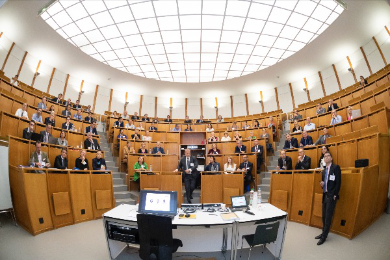
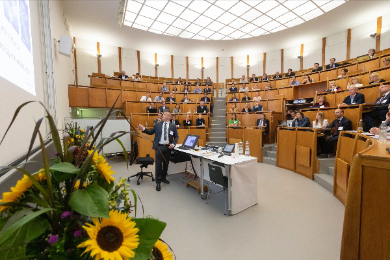
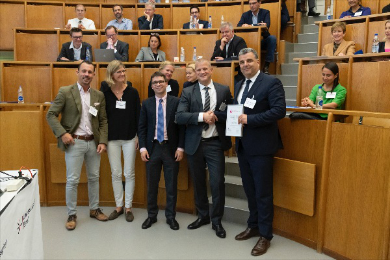
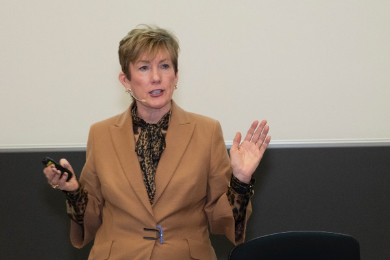
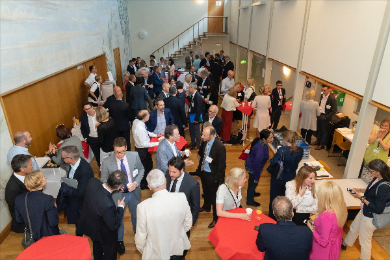
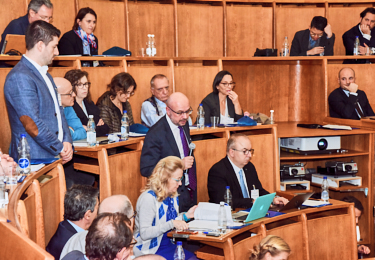
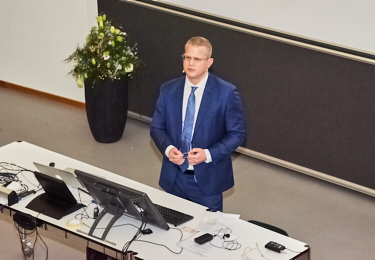
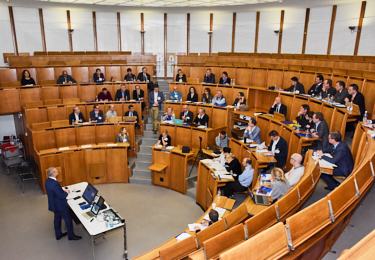


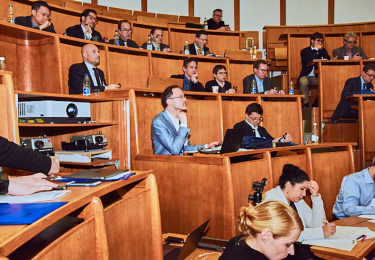
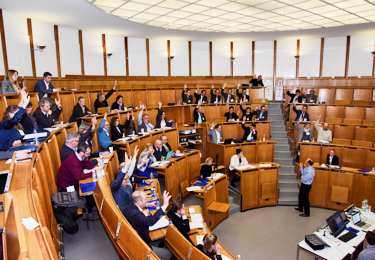
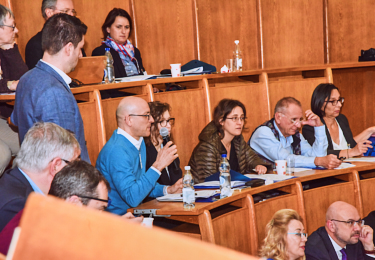

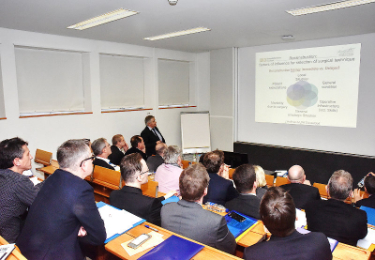
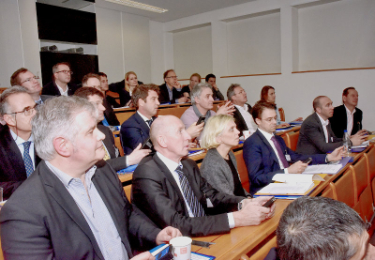

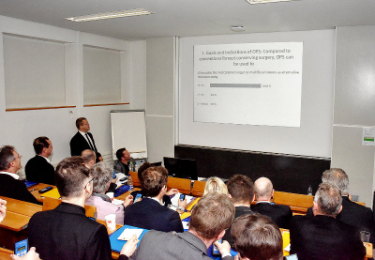
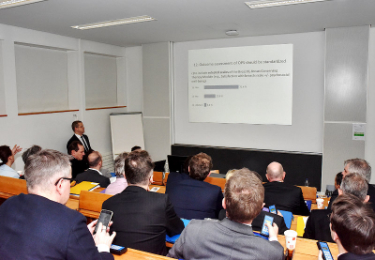
 With the substantial advantages of oncoplastic surgery being increasingly recognized, it is time for our community to get organized. The mission of this independent non-profit organization is to bring international experts together, promote high-quality education for the next generation of oncoplastic surgeons and perform international multicenter studies.OPBC Founder and Coordinator for Switzerland: Prof. Walter Weber, University Hospital Basel
With the substantial advantages of oncoplastic surgery being increasingly recognized, it is time for our community to get organized. The mission of this independent non-profit organization is to bring international experts together, promote high-quality education for the next generation of oncoplastic surgeons and perform international multicenter studies.OPBC Founder and Coordinator for Switzerland: Prof. Walter Weber, University Hospital Basel The raison d'être of the OPBC is, at its heart, one of patient centricity as its mission is ultimately to improve surgical outcomes for all breast cancer survivors. The patient advocacy group strives to bring the voice of the patient to enrich the consortium's endeavours. We seek to recruit patients with a diversity of surgical experiences so that we can speak with authority on the full spectrum of procedures in the consortium's scope.Global Patient Advocacy Lead: Jane Shaw
The raison d'être of the OPBC is, at its heart, one of patient centricity as its mission is ultimately to improve surgical outcomes for all breast cancer survivors. The patient advocacy group strives to bring the voice of the patient to enrich the consortium's endeavours. We seek to recruit patients with a diversity of surgical experiences so that we can speak with authority on the full spectrum of procedures in the consortium's scope.Global Patient Advocacy Lead: Jane Shaw Pioneering Precision in Breast Cancer Surgery – The Oncoplastic Breast Consortium leads scientific advancements, pushing the limits of treatment, elevating surgical community internationally, prioritising oncoplastic innovation for improved cosmetic results and enhanced quality of life, all while maintaining oncological integrity.Coordinator for Malaysia: Prof. See Mee Hoong, Universiti Malaya, Kuala Lumpur
Pioneering Precision in Breast Cancer Surgery – The Oncoplastic Breast Consortium leads scientific advancements, pushing the limits of treatment, elevating surgical community internationally, prioritising oncoplastic innovation for improved cosmetic results and enhanced quality of life, all while maintaining oncological integrity.Coordinator for Malaysia: Prof. See Mee Hoong, Universiti Malaya, Kuala Lumpur Oncoplastic breast surgery is to surgeons what tailored oncological therapies are to oncologists. In order to be able to give full consideration to each individual patient's needs, we need to be encouraging and disseminating the oncoplastic approach to the next generation of surgeons. In addition, we need to further confirm and support its safe use by collaborative high-quality data.Coordinator for Sweden: Ass. Prof. Jana De Boniface, Karolinska Institutet, Capio St. Göran's Hospital
Oncoplastic breast surgery is to surgeons what tailored oncological therapies are to oncologists. In order to be able to give full consideration to each individual patient's needs, we need to be encouraging and disseminating the oncoplastic approach to the next generation of surgeons. In addition, we need to further confirm and support its safe use by collaborative high-quality data.Coordinator for Sweden: Ass. Prof. Jana De Boniface, Karolinska Institutet, Capio St. Göran's Hospital In the era of precision medicine, there is a need to establish the real indications for oncoplastic surgery and how to integrate these techniques into the management of breast cancer as a more evidence based treatment.Coordinator for Spain: Prof. Isabel T. Rubio, Clinica Universidad de Navarra, Madrid
In the era of precision medicine, there is a need to establish the real indications for oncoplastic surgery and how to integrate these techniques into the management of breast cancer as a more evidence based treatment.Coordinator for Spain: Prof. Isabel T. Rubio, Clinica Universidad de Navarra, Madrid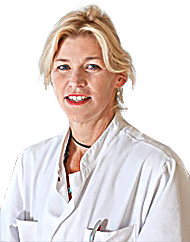 Current breast cancer treatment is tailored to the individual tumor and to the individual patient. Oncoplastic breast surgery plays a key role in high quality «patient tailored» breast cancer care. This consortium believes that extensive education and training, in combination with scientific research and data sharing will contribute in the real integration of oncoplastic breast surgery in breast cancer care.Coordinator for the Netherlands: Dr. Marie-Jeanne Vrancken Peeters, Netherlands Cancer Institute
Current breast cancer treatment is tailored to the individual tumor and to the individual patient. Oncoplastic breast surgery plays a key role in high quality «patient tailored» breast cancer care. This consortium believes that extensive education and training, in combination with scientific research and data sharing will contribute in the real integration of oncoplastic breast surgery in breast cancer care.Coordinator for the Netherlands: Dr. Marie-Jeanne Vrancken Peeters, Netherlands Cancer Institute Oncoplastic surgery allows us to combine the principles of cancer surgery with breast reconstruction, allowing for excellent oncologic outcomes with breast conservation, and improved cosmesis for our patients. An international consortium of surgeons dedicated to this approach in breast cancer care will lead the way for evaluating our long-term outcomes through research and provide the network for improving and promoting education in OPS techniques.Coordinator for Canada: Dr. Tulin Cil, Cancer Clinical Research Unit, Princess Margaret Cancer Centre
Oncoplastic surgery allows us to combine the principles of cancer surgery with breast reconstruction, allowing for excellent oncologic outcomes with breast conservation, and improved cosmesis for our patients. An international consortium of surgeons dedicated to this approach in breast cancer care will lead the way for evaluating our long-term outcomes through research and provide the network for improving and promoting education in OPS techniques.Coordinator for Canada: Dr. Tulin Cil, Cancer Clinical Research Unit, Princess Margaret Cancer Centre Oncoplastic breast surgery is a combination of sound oncological principles and techniques to restore or enhance the appearance of the breast, traditionally used in plastic surgery. The goal is to achieve the best possible oncological, aesthetic and functional outcome considering each individual patient’s circumstances.Coordinator for Australia: Prof. Elisabeth Elder, Westmead Breast Cancer Institute, University of Sydney
Oncoplastic breast surgery is a combination of sound oncological principles and techniques to restore or enhance the appearance of the breast, traditionally used in plastic surgery. The goal is to achieve the best possible oncological, aesthetic and functional outcome considering each individual patient’s circumstances.Coordinator for Australia: Prof. Elisabeth Elder, Westmead Breast Cancer Institute, University of Sydney Oncoplastic surgery is an up-to-date and holistic concept of breast cancer surgery. Rearranging breast tissue gives enormous opportunities to body sculpture breast cancer defects without compromising cancer treatment.Coordinator for Finland: Dr. Sarianna Joukainen, Kuopio University Hospital
Oncoplastic surgery is an up-to-date and holistic concept of breast cancer surgery. Rearranging breast tissue gives enormous opportunities to body sculpture breast cancer defects without compromising cancer treatment.Coordinator for Finland: Dr. Sarianna Joukainen, Kuopio University Hospital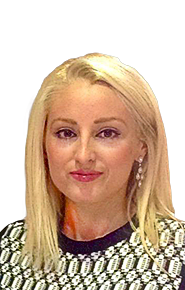 Oncoplastic breast surgery is about fighting cancer adequately in the new era of multimodality breast cancer treatment by optimizing quality of life. An international consortium of oncoplastic breast surgeons enables tailored surgery to originate from a high level of evidence.Coordinator for Greece: Dr. Ekaterini Christina Tampaki, Laiko General Hospital, School of Medicine, National and Kapodistrian University of Athens
Oncoplastic breast surgery is about fighting cancer adequately in the new era of multimodality breast cancer treatment by optimizing quality of life. An international consortium of oncoplastic breast surgeons enables tailored surgery to originate from a high level of evidence.Coordinator for Greece: Dr. Ekaterini Christina Tampaki, Laiko General Hospital, School of Medicine, National and Kapodistrian University of Athens Oncoplastic breast surgery is increasing all over the world and improves the health of breast cancer patients. Although the scientific background is improving, oncoplastic surgery is still based on level III evidence. There is an urgent need to gather all experts in this field to further improve our knowledge.Coordinator for Austria: Prof. Florian Fitzal, University Hospital Vienna
Oncoplastic breast surgery is increasing all over the world and improves the health of breast cancer patients. Although the scientific background is improving, oncoplastic surgery is still based on level III evidence. There is an urgent need to gather all experts in this field to further improve our knowledge.Coordinator for Austria: Prof. Florian Fitzal, University Hospital Vienna Oncoplastic breast surgery has a long tradition and some internationally well-known pioneers in this field in Germany. The panelists encourage international standardization and training and share their knowledge with the members of this consortium.Coordinator for Germany: Prof. Jörg Heil, University Hospital Heidelberg
Oncoplastic breast surgery has a long tradition and some internationally well-known pioneers in this field in Germany. The panelists encourage international standardization and training and share their knowledge with the members of this consortium.Coordinator for Germany: Prof. Jörg Heil, University Hospital Heidelberg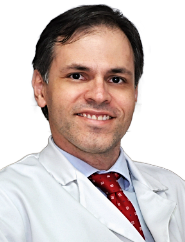 In Brazil, the rate of patients with breast reconstruction in the public health system increased from 15% in 2008 to 29% in 2014. We believe that well-trained breast surgeons involved in the breast reconstruction process have greatly helped to improve the population's access. The possibility of oncoplastic training and comprehensive medical education is crucial to guarantee a better treatment and quality of life for women with breast cancer.Coordinator for Brazil: Dr. Régis Resende Paulinelli, Araújo Jorge Hospital
In Brazil, the rate of patients with breast reconstruction in the public health system increased from 15% in 2008 to 29% in 2014. We believe that well-trained breast surgeons involved in the breast reconstruction process have greatly helped to improve the population's access. The possibility of oncoplastic training and comprehensive medical education is crucial to guarantee a better treatment and quality of life for women with breast cancer.Coordinator for Brazil: Dr. Régis Resende Paulinelli, Araújo Jorge Hospital Oncoplastic surgery combines wide tumor excision with reduction mammoplasty techniques, thereby allowing breast conserving surgery for larger tumors with free margins. This concept can even be expanded by the use of neoadjuvant chemotherapy, and is particularly important in Paraguay, where 40% to 50% of breast cancer patients present with stage III disease.Coordinator for Paraguay: Prof. Ricardo Pedro Abed, Universidad Nacional de Asunción, Hospital de Clínicas. San Lorenzo-Py.
Oncoplastic surgery combines wide tumor excision with reduction mammoplasty techniques, thereby allowing breast conserving surgery for larger tumors with free margins. This concept can even be expanded by the use of neoadjuvant chemotherapy, and is particularly important in Paraguay, where 40% to 50% of breast cancer patients present with stage III disease.Coordinator for Paraguay: Prof. Ricardo Pedro Abed, Universidad Nacional de Asunción, Hospital de Clínicas. San Lorenzo-Py.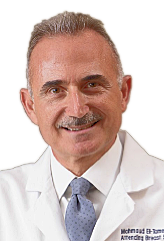 We have significantly improved the survival of breast cancer patients over the past decade; we need to also focus on improving their quality of life. Oncoplastic surgery is a tool that allows us to restore, maintain or enhance the final aesthetic result of the breast, one of the key factors that impact the quality of life of a patient. As a consortium, we have to critically evaluate, improve, standardize and disseminate that tool.Coordinator for the USA: Prof. Mahmoud El-Tamer, Memorial Sloan Kettering Cancer Center
We have significantly improved the survival of breast cancer patients over the past decade; we need to also focus on improving their quality of life. Oncoplastic surgery is a tool that allows us to restore, maintain or enhance the final aesthetic result of the breast, one of the key factors that impact the quality of life of a patient. As a consortium, we have to critically evaluate, improve, standardize and disseminate that tool.Coordinator for the USA: Prof. Mahmoud El-Tamer, Memorial Sloan Kettering Cancer Center The combination of cancer surgery and plastic surgery techniques lead to a significant improvement in the aesthetic outcomes of breast cancer surgery, avoiding unnecessary surgical breast deformities without compromising locoregional control. The oncoplastic approach should become the standard of care in the era of tailored breast cancer management.Coordinator for the UK: Dr. Dr. Tibor Kovacs, Guy's Hospital Breast Unit, London
The combination of cancer surgery and plastic surgery techniques lead to a significant improvement in the aesthetic outcomes of breast cancer surgery, avoiding unnecessary surgical breast deformities without compromising locoregional control. The oncoplastic approach should become the standard of care in the era of tailored breast cancer management.Coordinator for the UK: Dr. Dr. Tibor Kovacs, Guy's Hospital Breast Unit, London China fully supports the mission of the OPBC. Oncoplastic surgery plays an increasingly important role in clinical practice in China.Coordinator for China: Prof. Chen Xiaosong, Shanghai Ruijin Hospital, China, Shanghai
China fully supports the mission of the OPBC. Oncoplastic surgery plays an increasingly important role in clinical practice in China.Coordinator for China: Prof. Chen Xiaosong, Shanghai Ruijin Hospital, China, Shanghai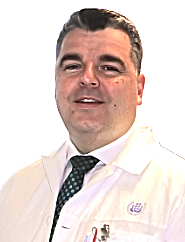 Oncoplastic breast surgery incorporates a wide range of surgical techniques, making personalized breast cancer surgery possible.Coordinator for Hungary: Dr. Zoltan Matrai, National Institute of Oncology, Hungary, Budapest
Oncoplastic breast surgery incorporates a wide range of surgical techniques, making personalized breast cancer surgery possible.Coordinator for Hungary: Dr. Zoltan Matrai, National Institute of Oncology, Hungary, Budapest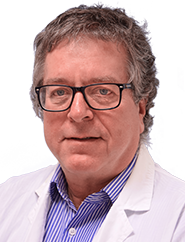 Oncoplastic breast surgery is a welcome development in the approach to surgery for women with operable breast cancer. The OPBC is an important initiative for the dissemination, standardization and auditing of oncoplastic techniques. This will undoubtedly contribute to further improvement in the quality of treatment our patients receive.Coordinator for Israel: Dr. Moshe Carmon, Shaare Zedek Medical Center Jerusalem
Oncoplastic breast surgery is a welcome development in the approach to surgery for women with operable breast cancer. The OPBC is an important initiative for the dissemination, standardization and auditing of oncoplastic techniques. This will undoubtedly contribute to further improvement in the quality of treatment our patients receive.Coordinator for Israel: Dr. Moshe Carmon, Shaare Zedek Medical Center Jerusalem Respect to Oncology, Optimism in ReconstructionCoordinator for Thailand: Dr. Visnu Lohsiriwat, Faculty of Medicine Siriraj Hospital, Mahidol University
Respect to Oncology, Optimism in ReconstructionCoordinator for Thailand: Dr. Visnu Lohsiriwat, Faculty of Medicine Siriraj Hospital, Mahidol University Oncoplastic Breast Surgery is about providing excellent cosmetic results without compromising oncological outcomes for all breast cancer patients. This Consortium will endeavour to enhance international collaboration to improve standards of care and the evidence base for oncoplastic breast surgical proceduresCoordinator for Ireland: Mr. Mitchel Barry, Mater Misericordiae University Hospital
Oncoplastic Breast Surgery is about providing excellent cosmetic results without compromising oncological outcomes for all breast cancer patients. This Consortium will endeavour to enhance international collaboration to improve standards of care and the evidence base for oncoplastic breast surgical proceduresCoordinator for Ireland: Mr. Mitchel Barry, Mater Misericordiae University Hospital Oncoplastic breast surgery principles and immediate breast reconstruction – more and more – should be offered as standard of care to all breast cancer patients. Together, we can make it possible!Coordinator for Portugal: Dr. Pedro Gouveia, Champalimaud Clinical Center
Oncoplastic breast surgery principles and immediate breast reconstruction – more and more – should be offered as standard of care to all breast cancer patients. Together, we can make it possible!Coordinator for Portugal: Dr. Pedro Gouveia, Champalimaud Clinical Center Oncoplastic breast surgery is the perfect bridge to satisfy the needs of our patients: best oncological outcome and quality of lifeCoordinator for Italy: Dr. Oreste D. Gentilini, IRCCS Ospedale San Raffaele
Oncoplastic breast surgery is the perfect bridge to satisfy the needs of our patients: best oncological outcome and quality of lifeCoordinator for Italy: Dr. Oreste D. Gentilini, IRCCS Ospedale San Raffaele As breast cancer is being treated by multidisciplinary teams with increasingly better survival results, quality-of-life is becoming an important concern for patients. Aesthetic results of oncoplastic breast surgery provide self-confidence and maintain self-esteem of the patients. Training for oncoplastic breast surgery should aim not only to provide high-level skills but also to coach the trainee for professional attitude.Coordinator for Turkey: Prof. Bahadir M. Gulluoglu, Marmara University School of Medicine.
As breast cancer is being treated by multidisciplinary teams with increasingly better survival results, quality-of-life is becoming an important concern for patients. Aesthetic results of oncoplastic breast surgery provide self-confidence and maintain self-esteem of the patients. Training for oncoplastic breast surgery should aim not only to provide high-level skills but also to coach the trainee for professional attitude.Coordinator for Turkey: Prof. Bahadir M. Gulluoglu, Marmara University School of Medicine. Oncoplastic breast surgery is nothing less than trying to heal without harming and also repair the consequences that in some situations cannot be avoided. It is not only a specialty, but a true work philosophy towards taking care about our patient's quality of life.Coordinator for Argentina: Dr. Eduardo González, Universidad de Buenos Aires.
Oncoplastic breast surgery is nothing less than trying to heal without harming and also repair the consequences that in some situations cannot be avoided. It is not only a specialty, but a true work philosophy towards taking care about our patient's quality of life.Coordinator for Argentina: Dr. Eduardo González, Universidad de Buenos Aires. Oncoplastic breast surgery is the tool to avoid breast deformities and improve aesthetic results after surgical treatment. As a consortium, our aim is to learn, share and spread these tools to be applied in breast cancer management.Coordinator for Chile: Prof. Jaime Letzkus Berríos, Hospital Clínico San Borja Arriarán, Universidad de Chile
Oncoplastic breast surgery is the tool to avoid breast deformities and improve aesthetic results after surgical treatment. As a consortium, our aim is to learn, share and spread these tools to be applied in breast cancer management.Coordinator for Chile: Prof. Jaime Letzkus Berríos, Hospital Clínico San Borja Arriarán, Universidad de Chile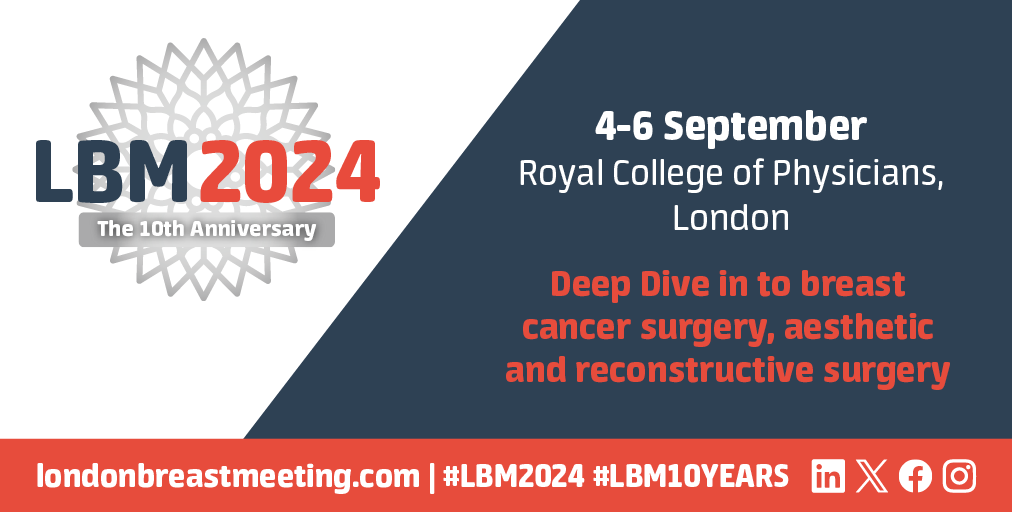 London Breast Meeting: Royal College of Physicians, London, UK
London Breast Meeting: Royal College of Physicians, London, UK